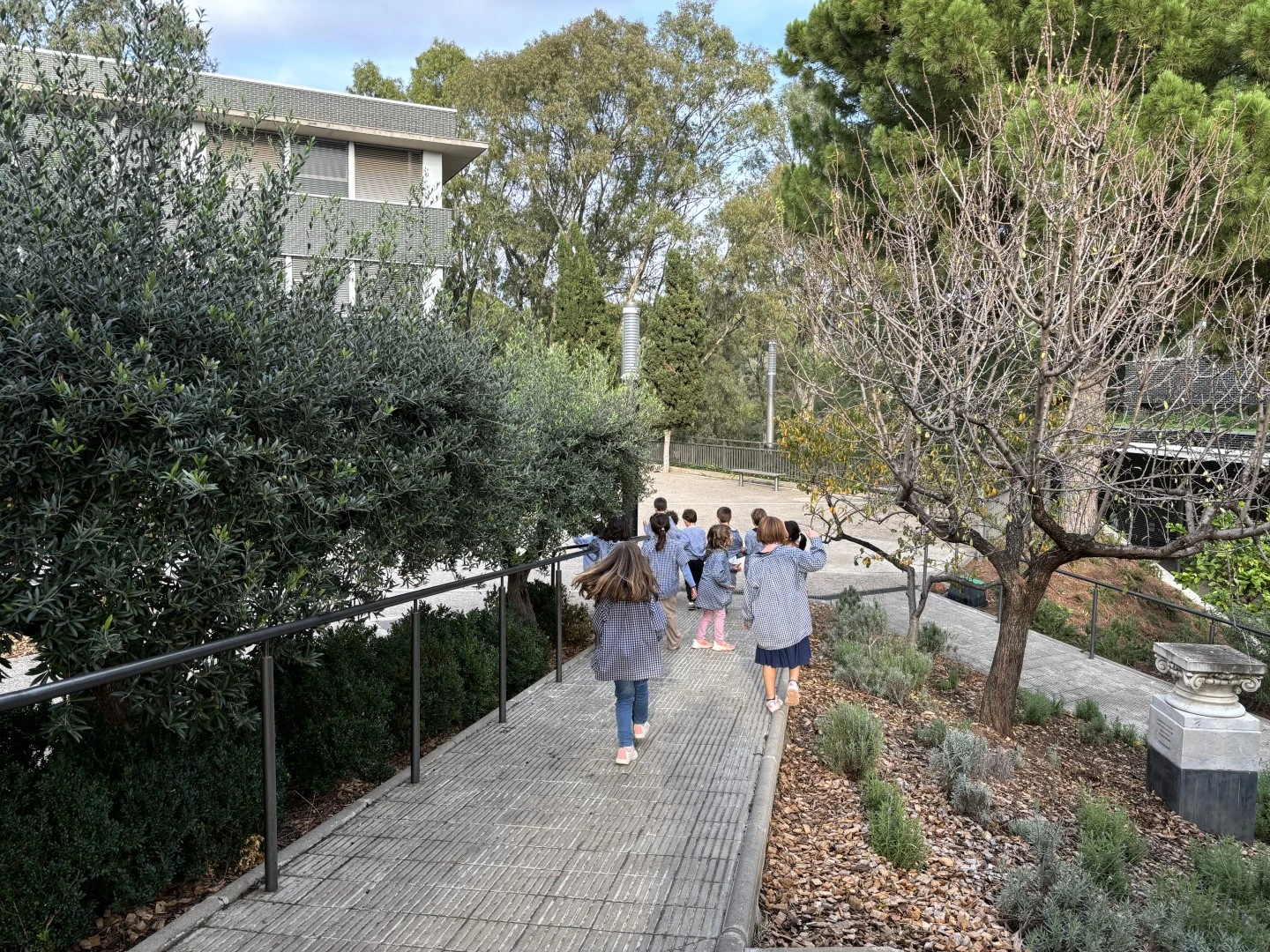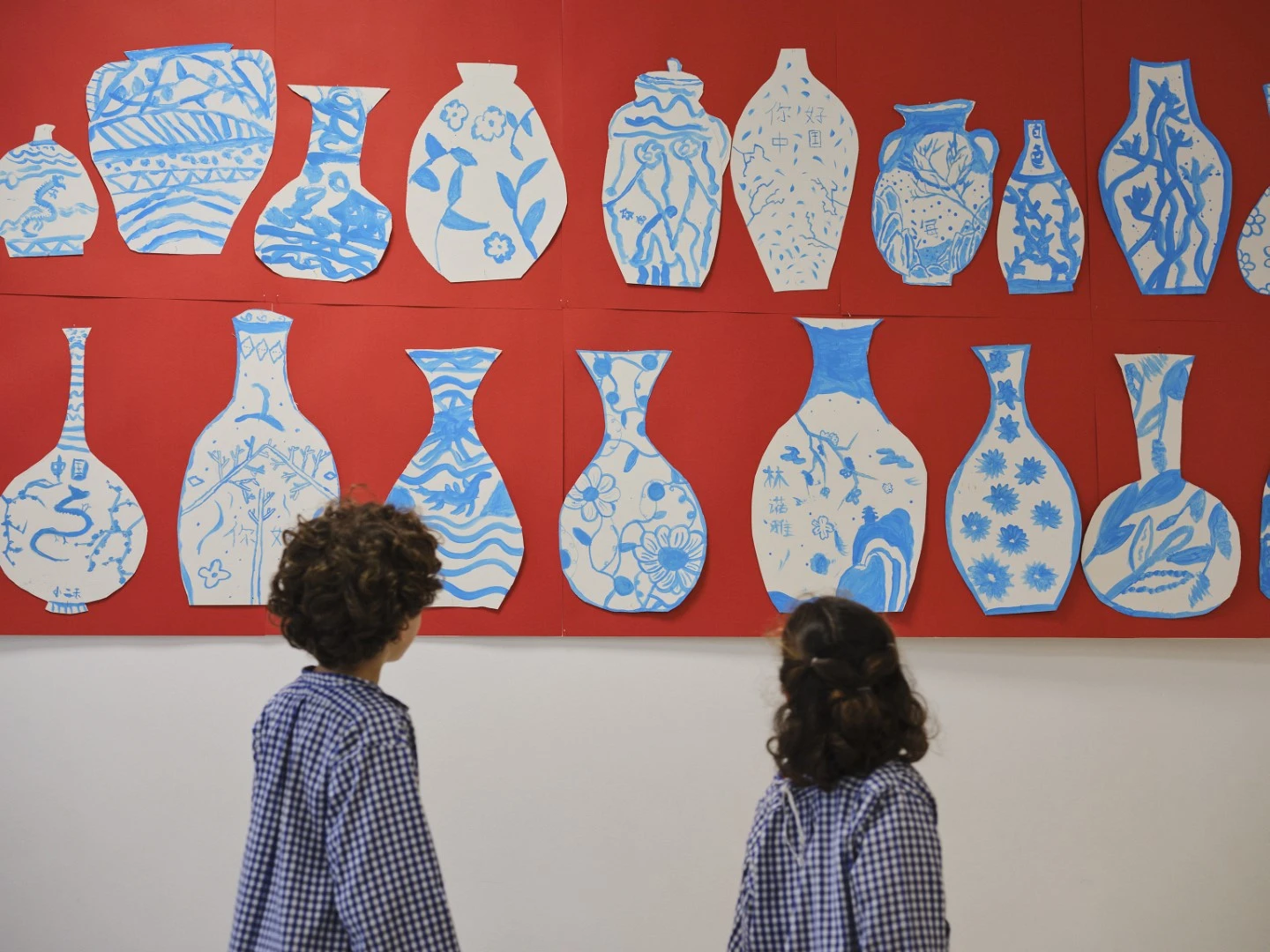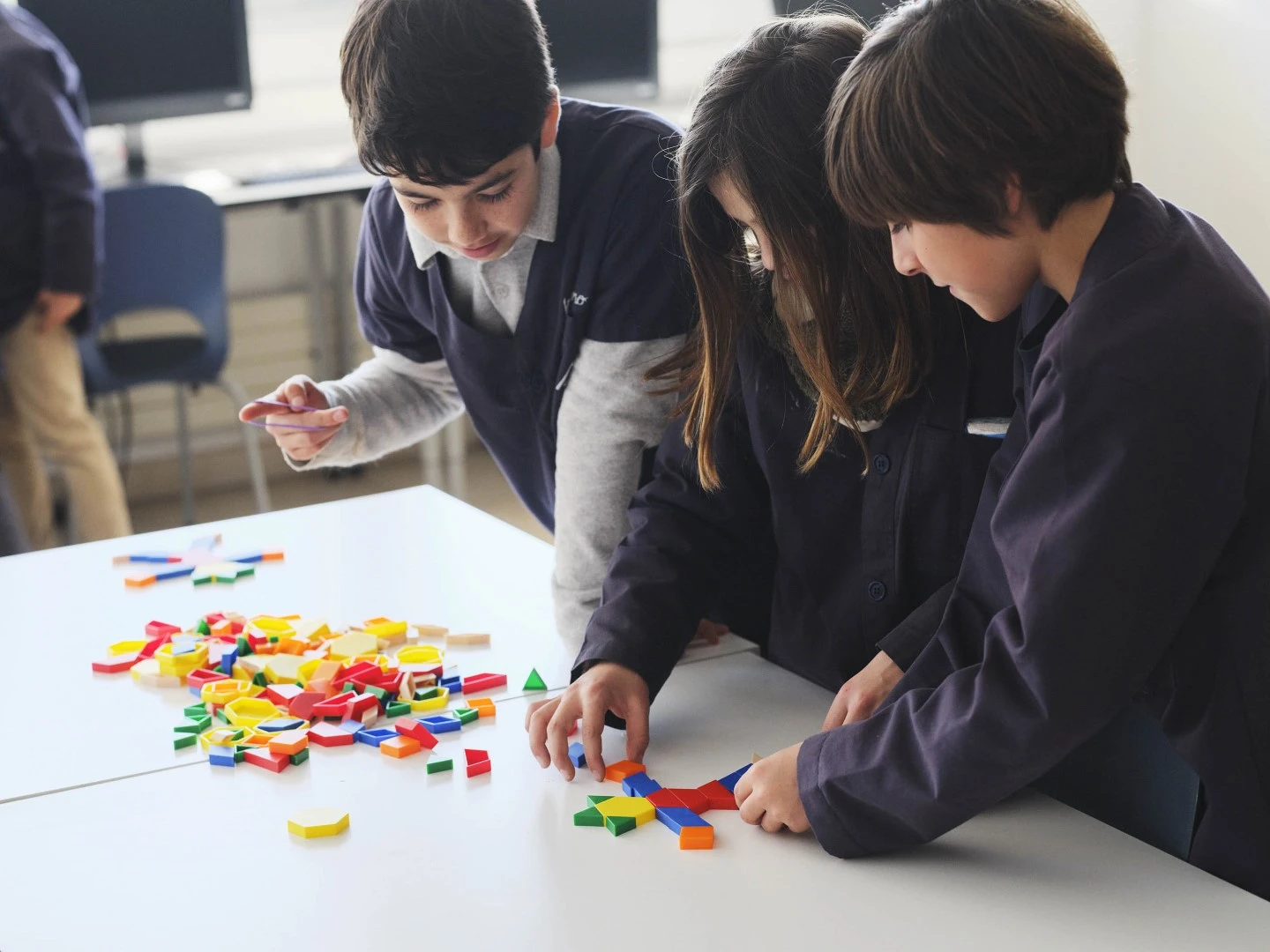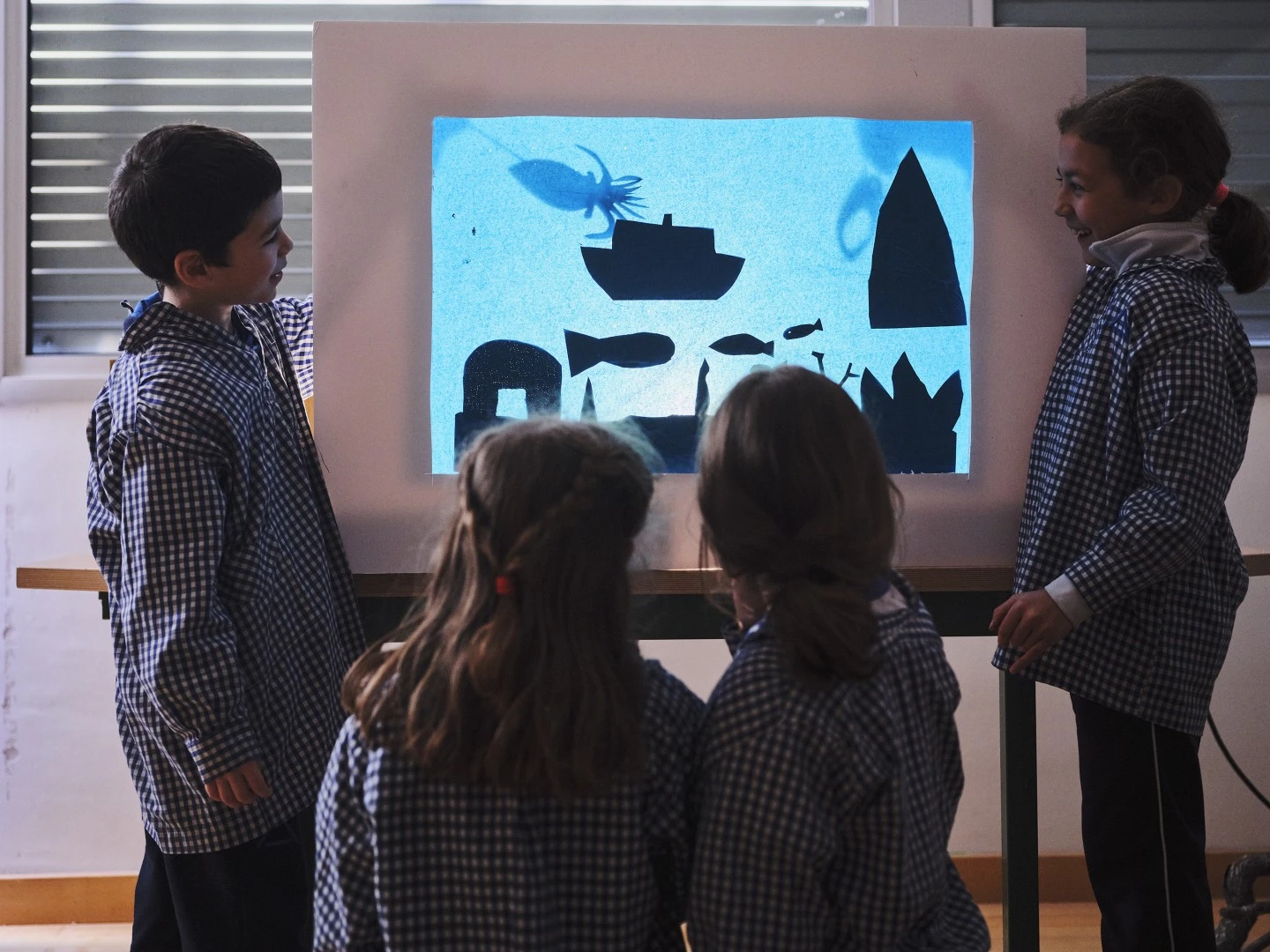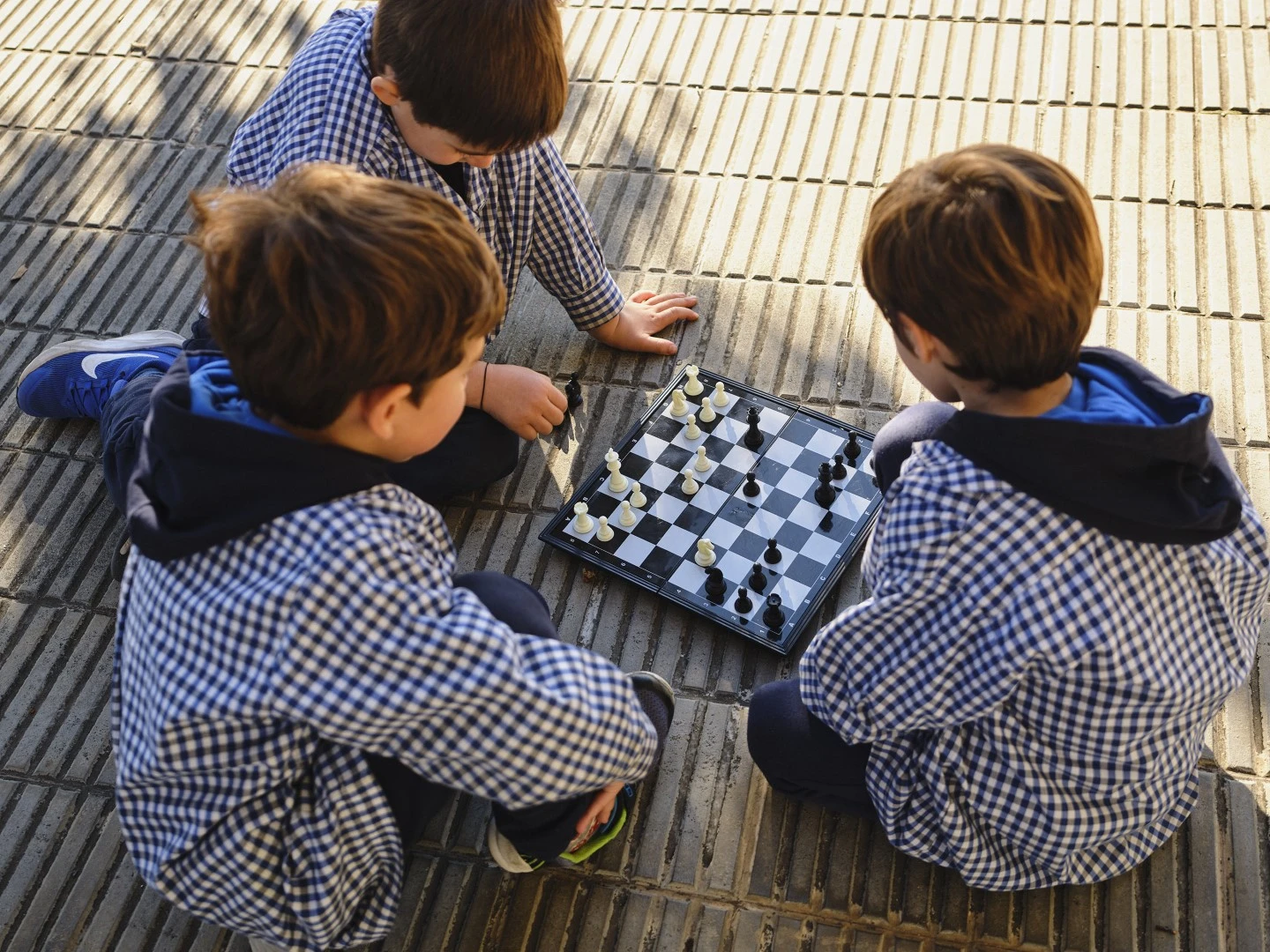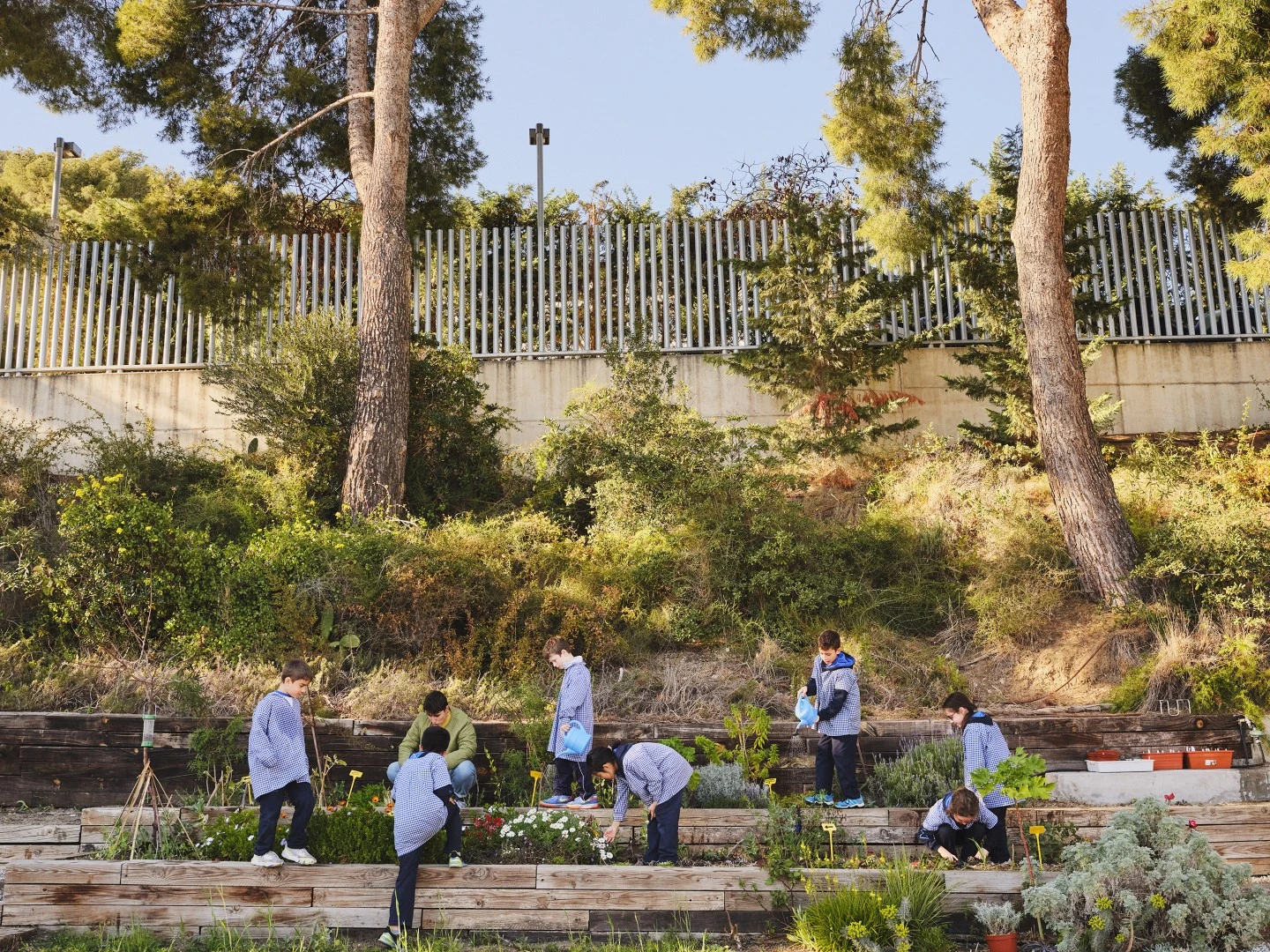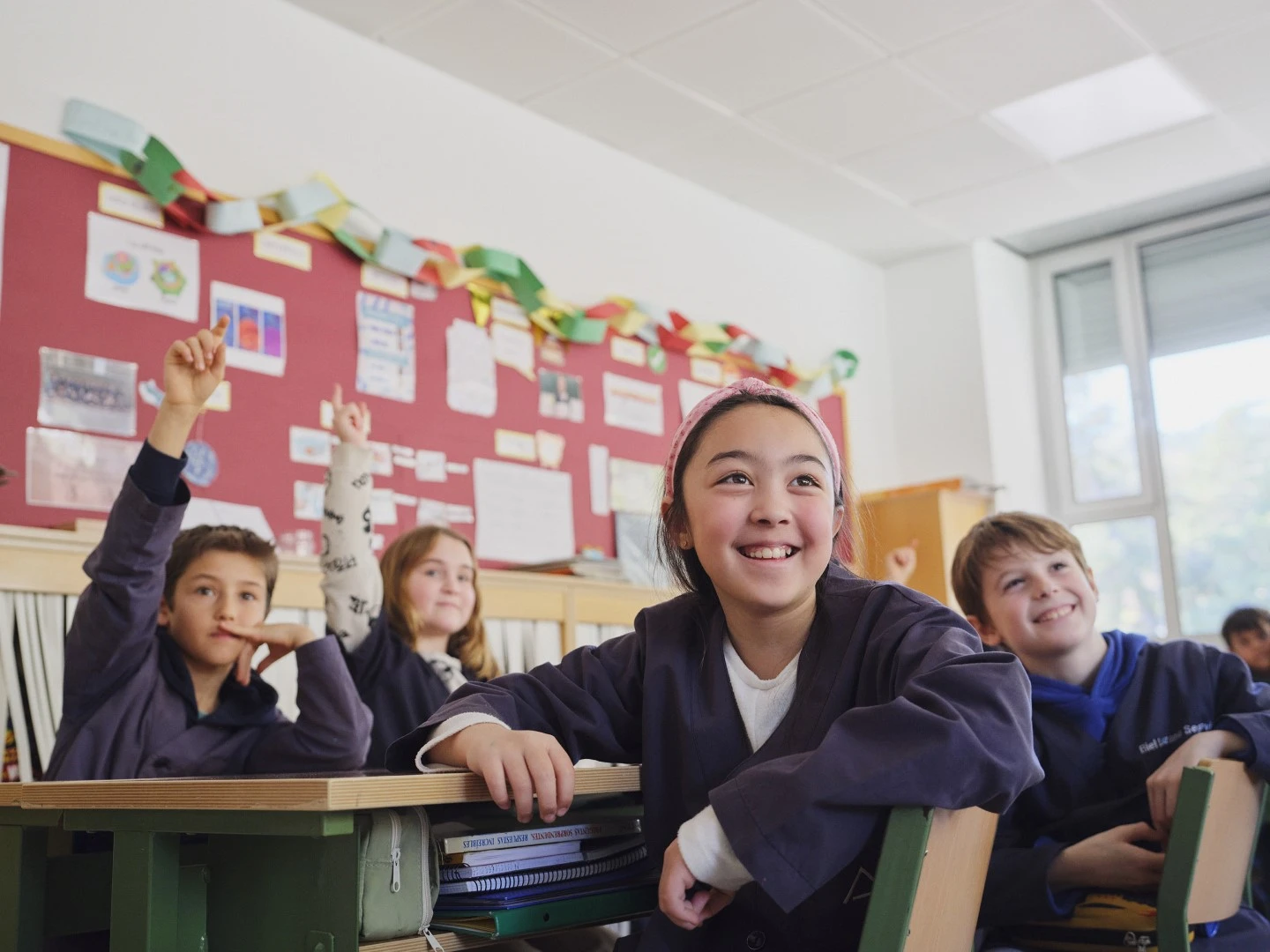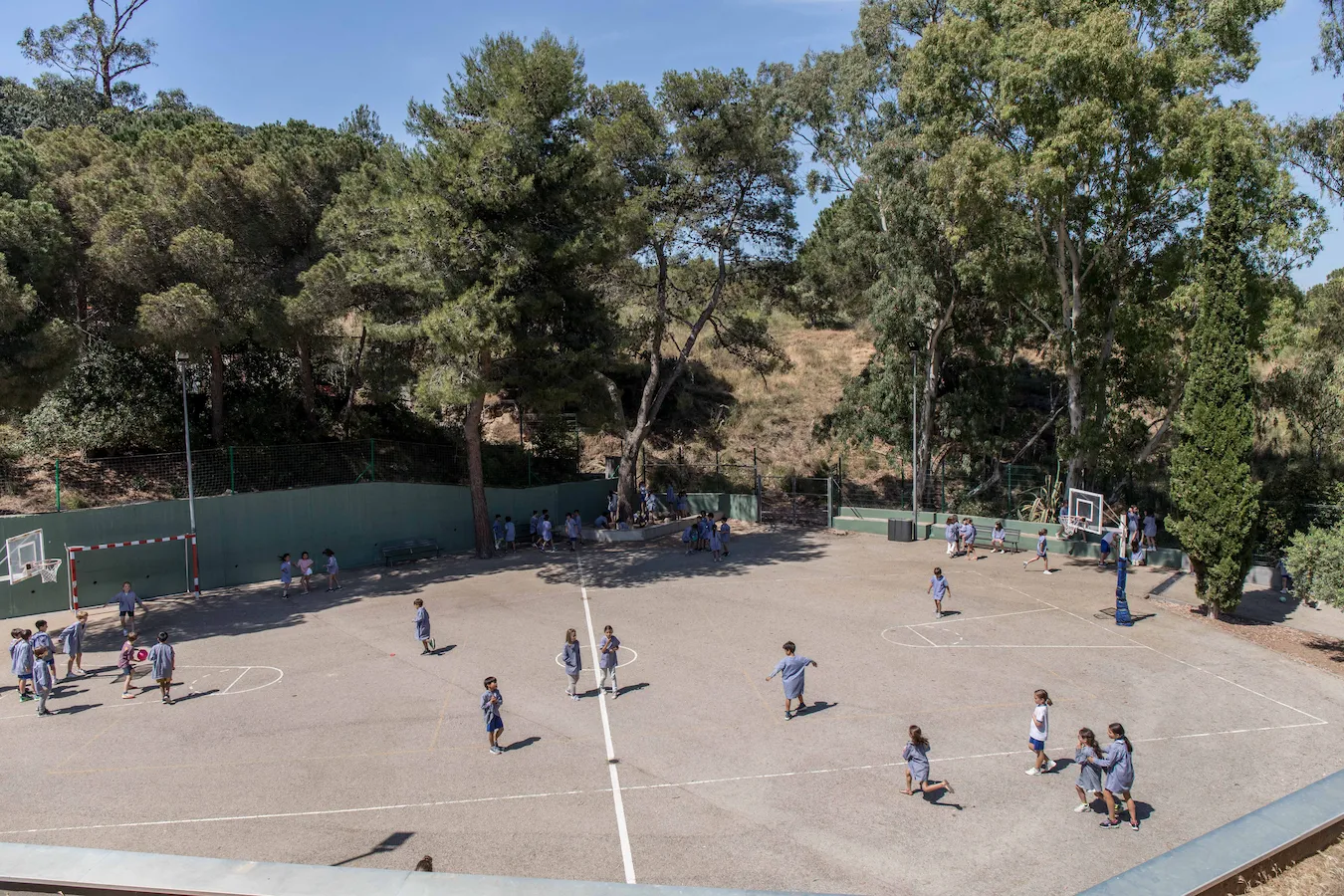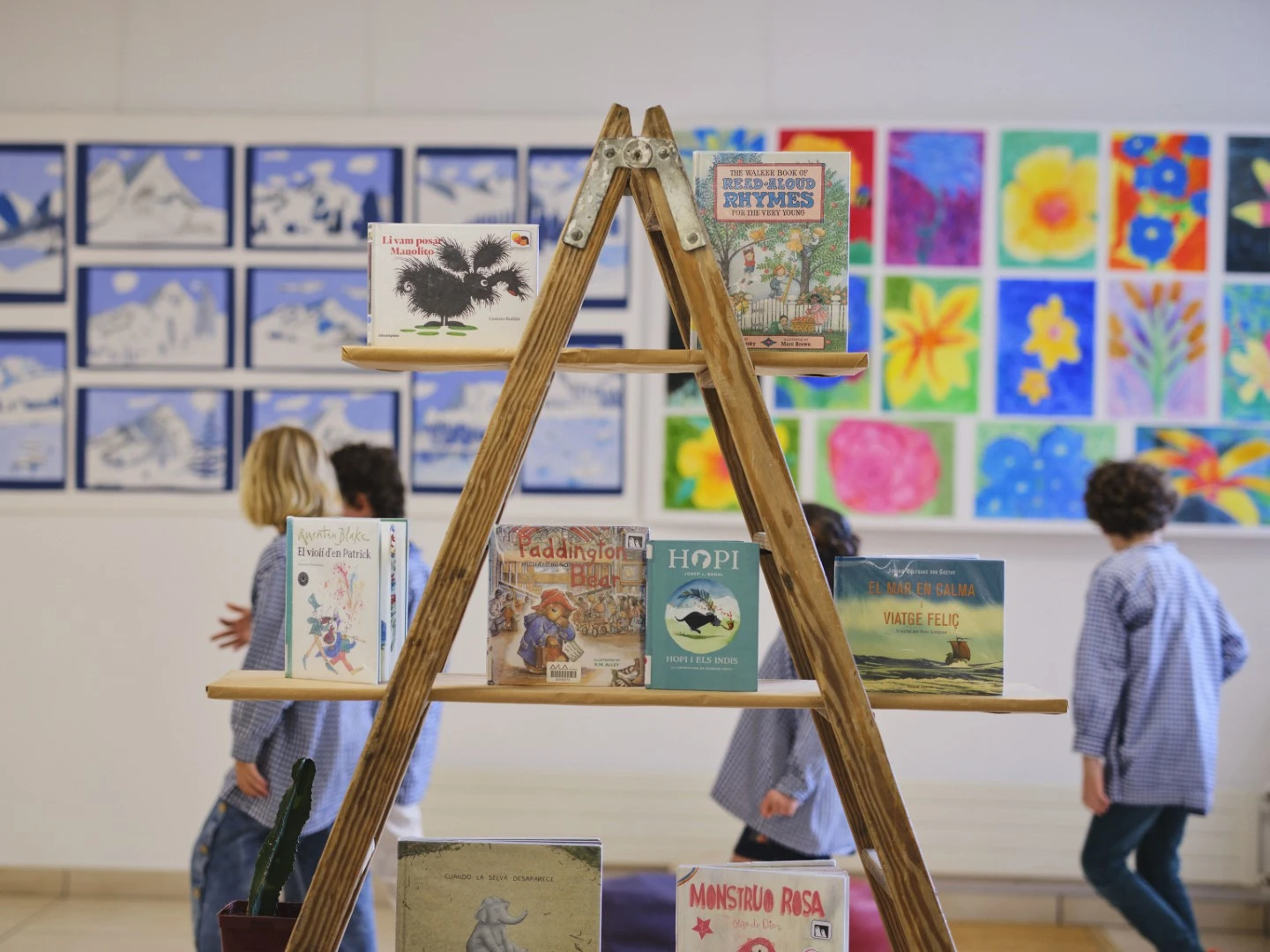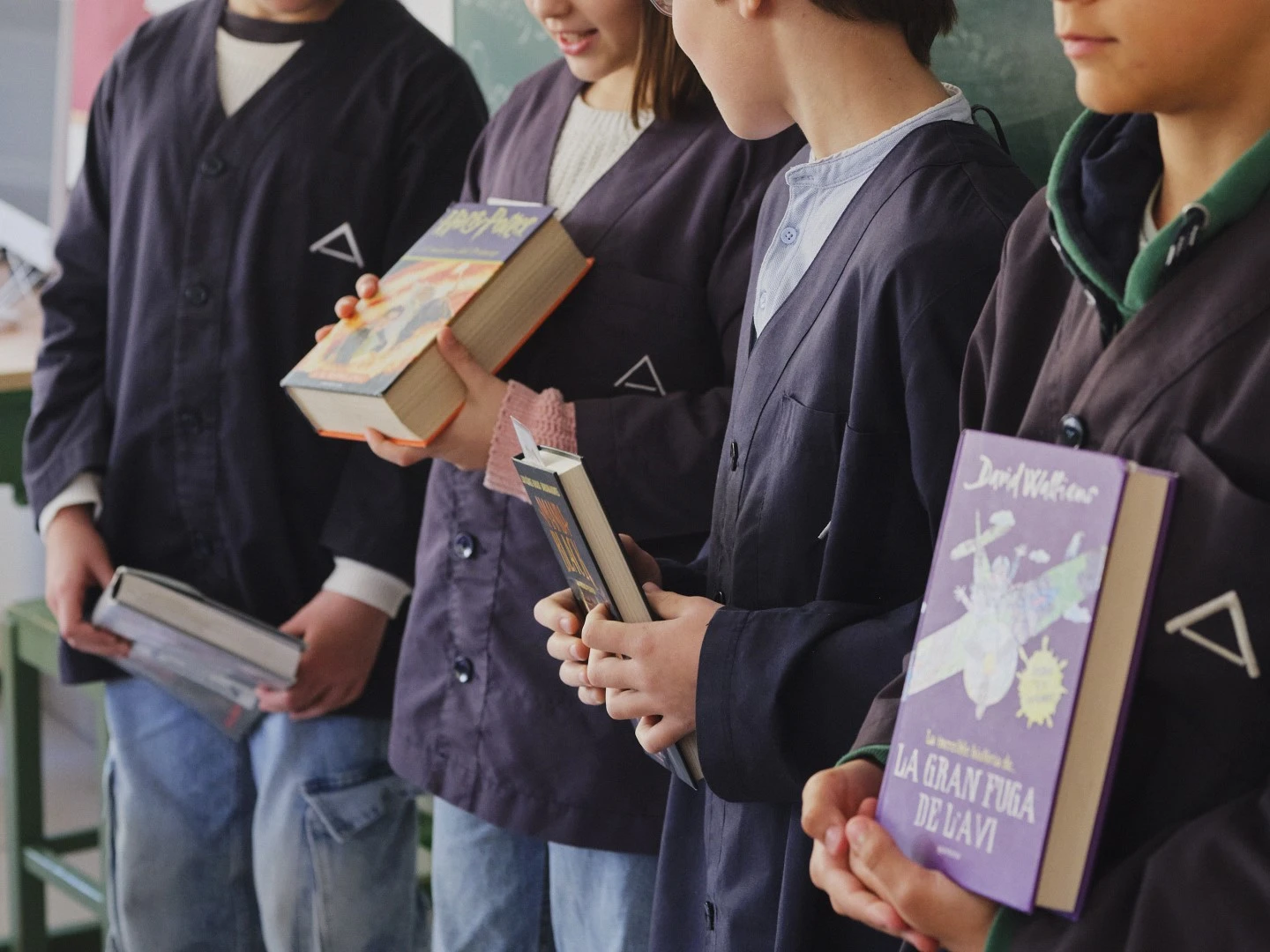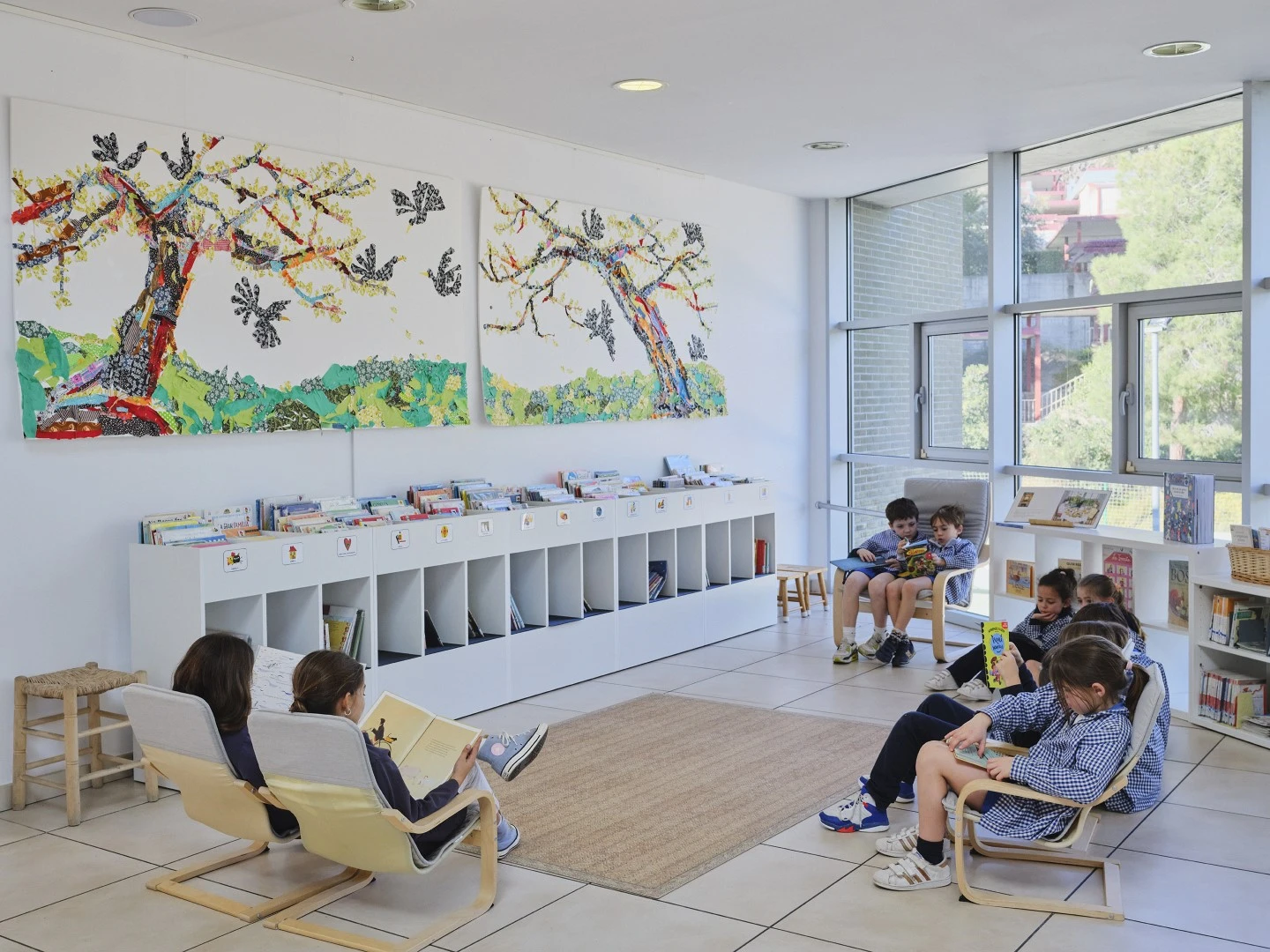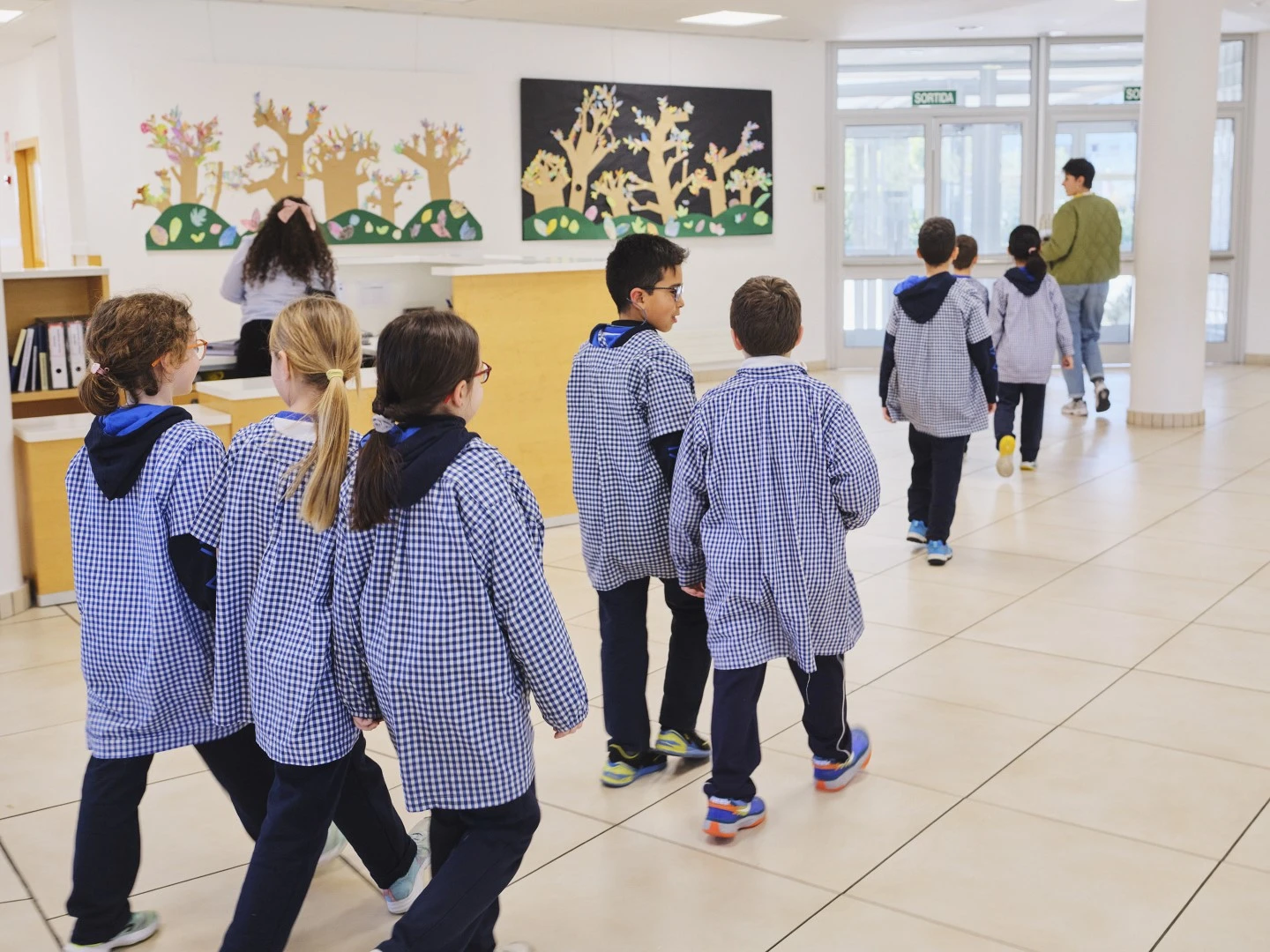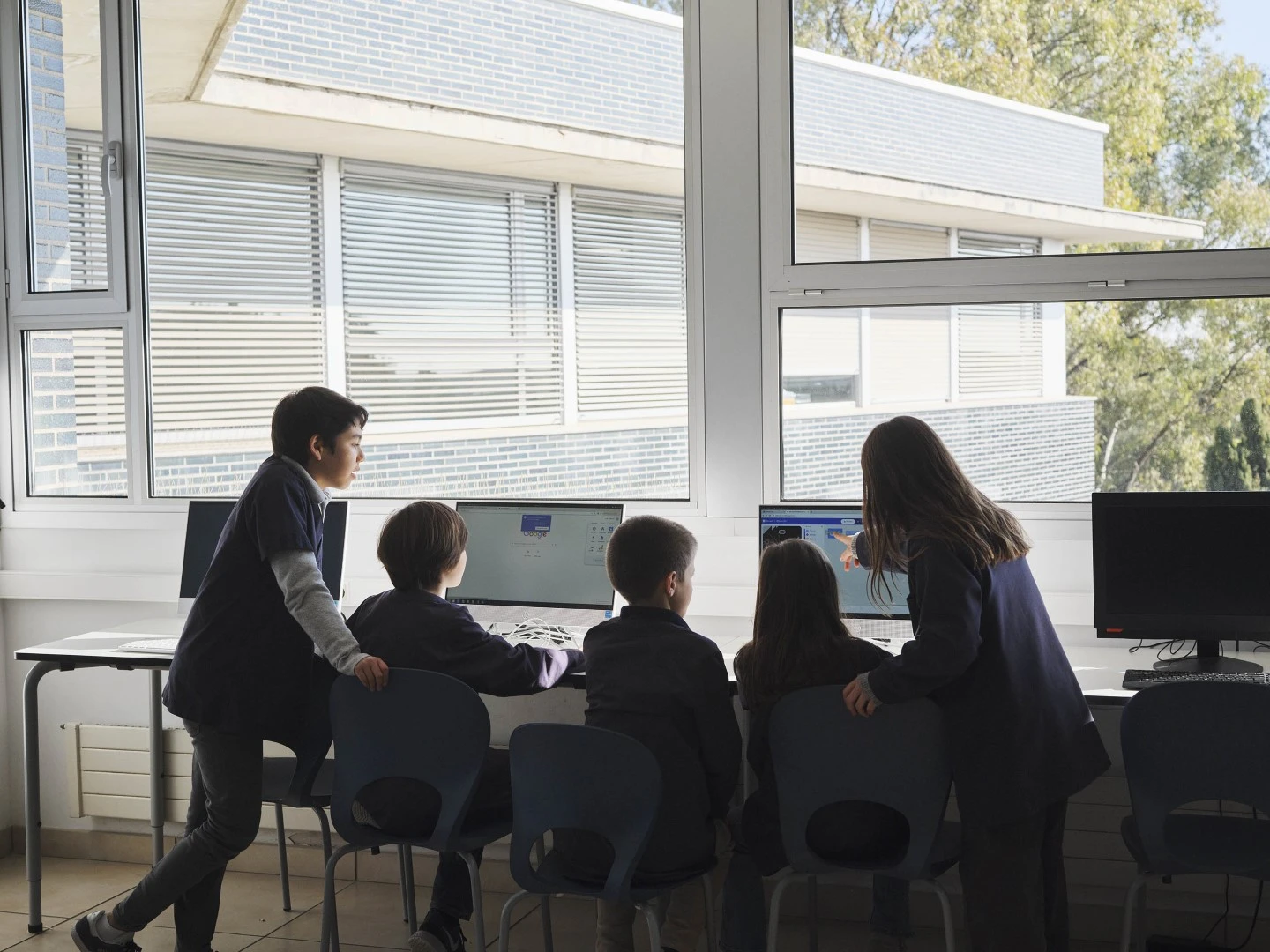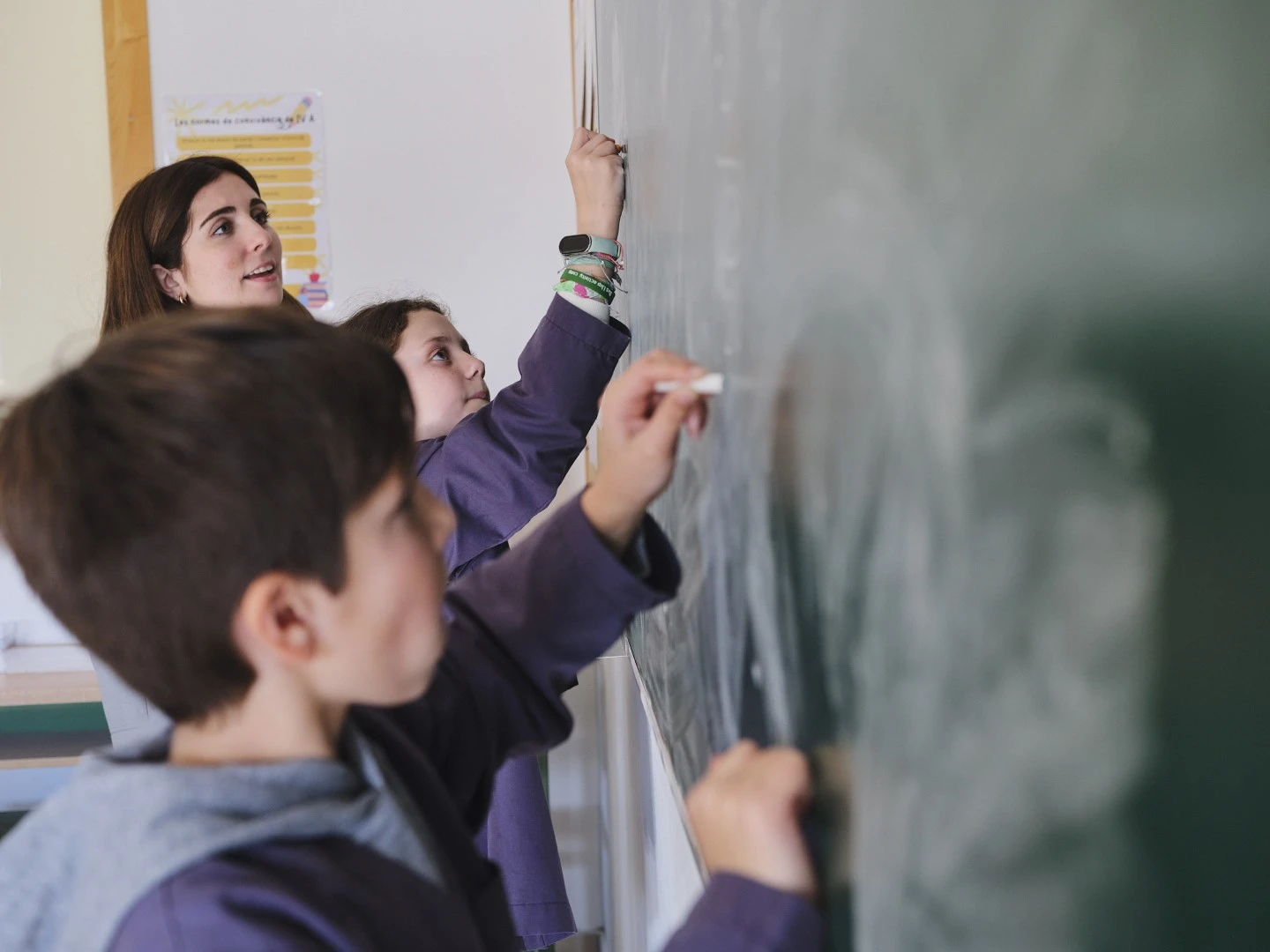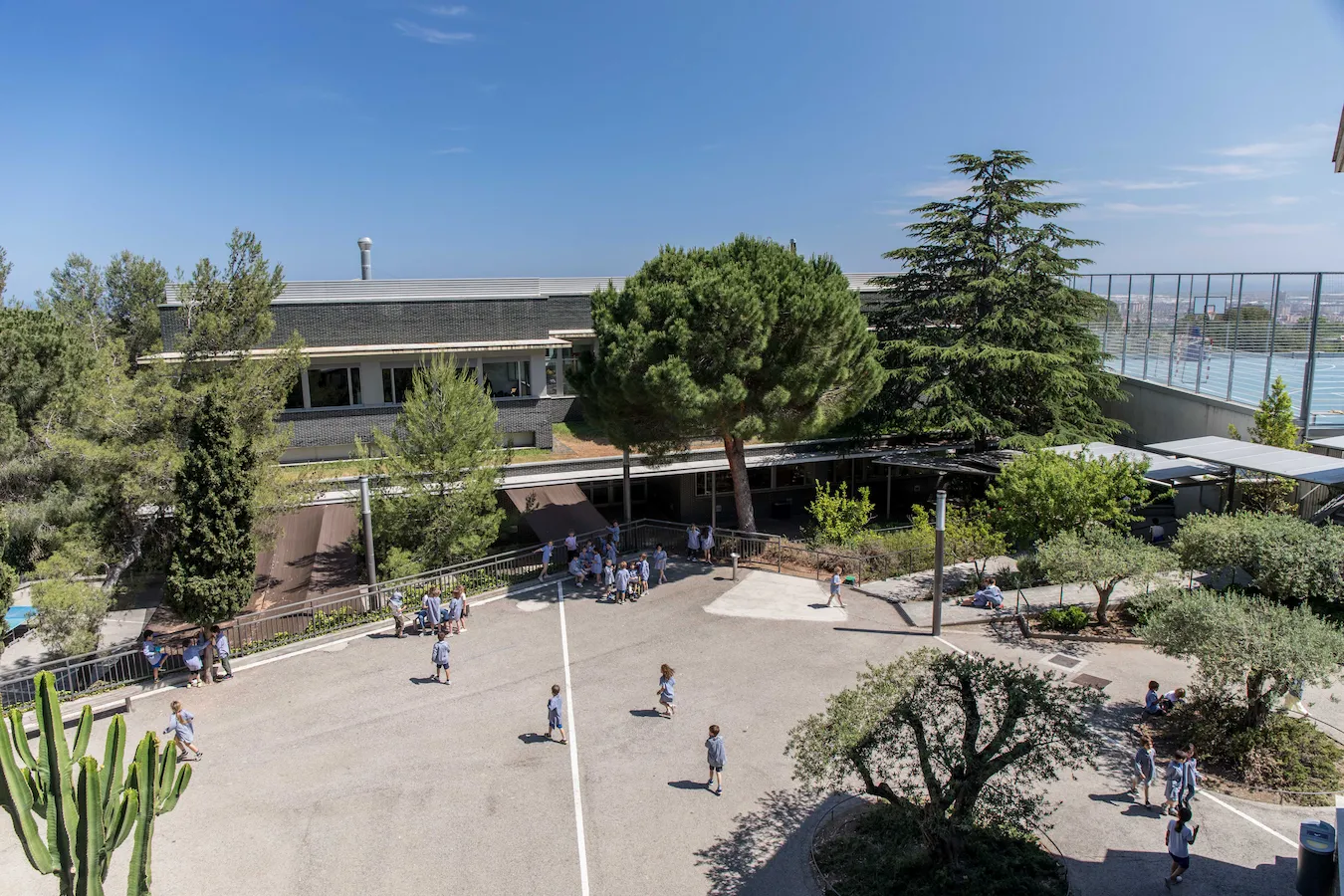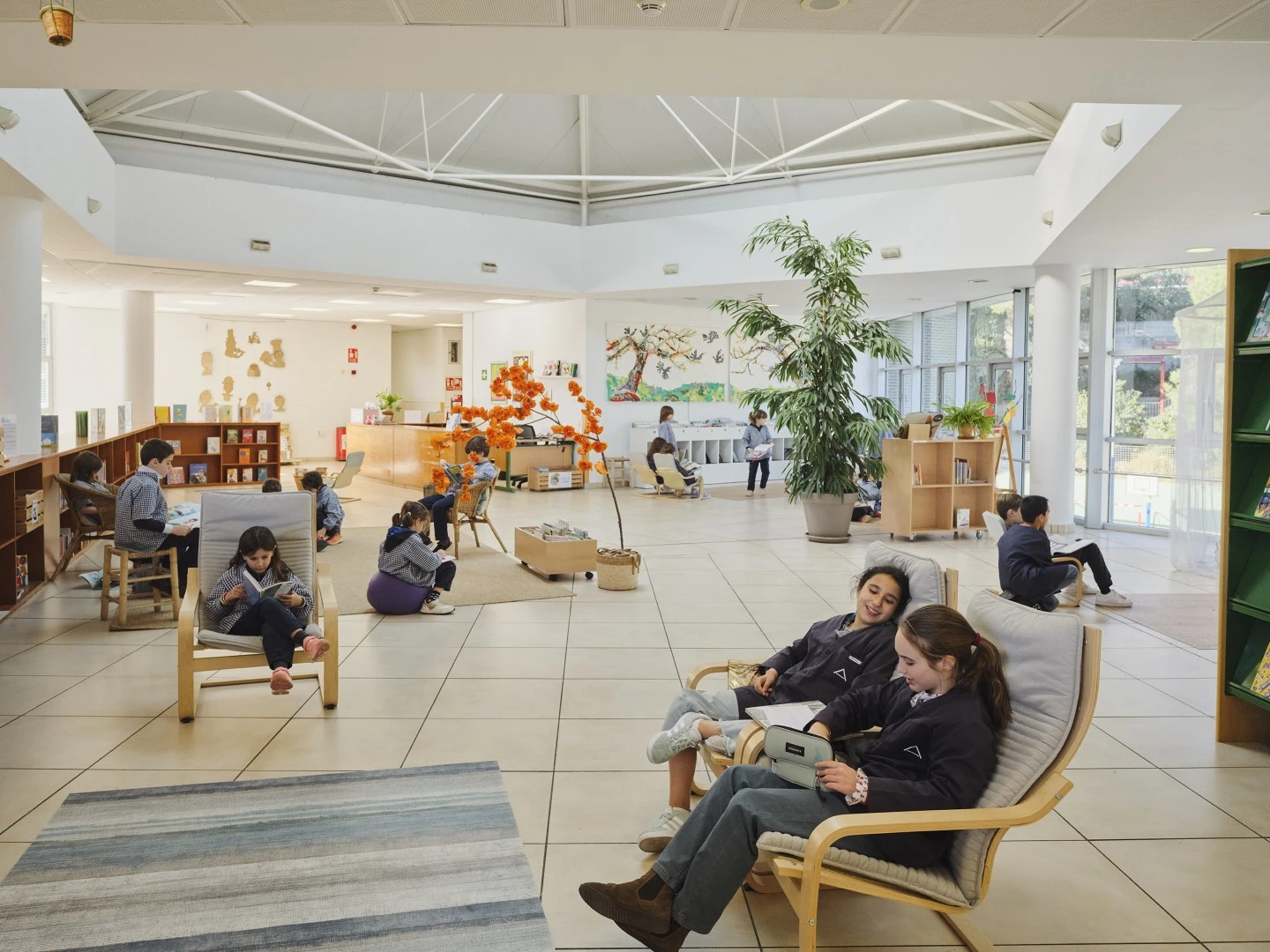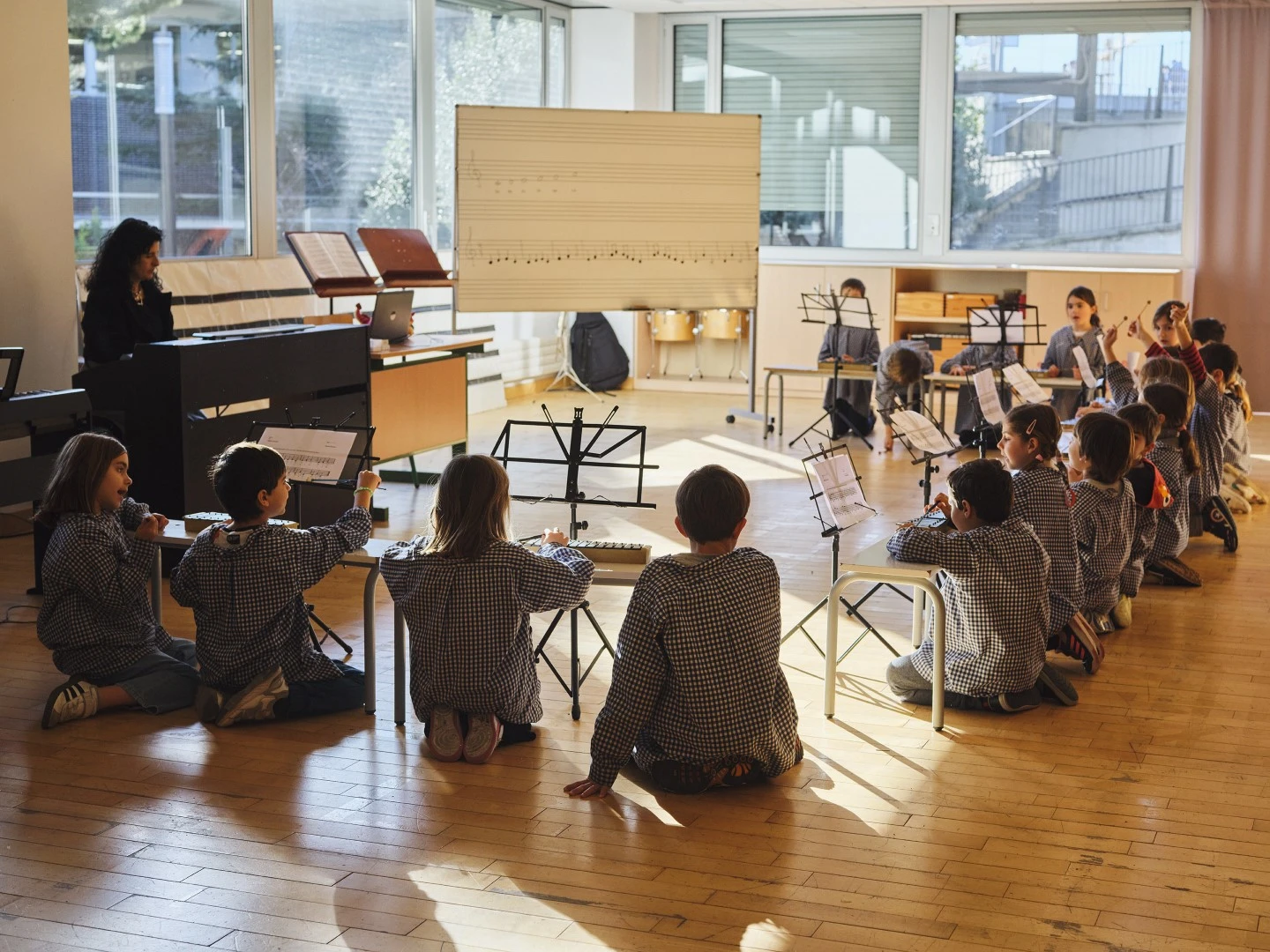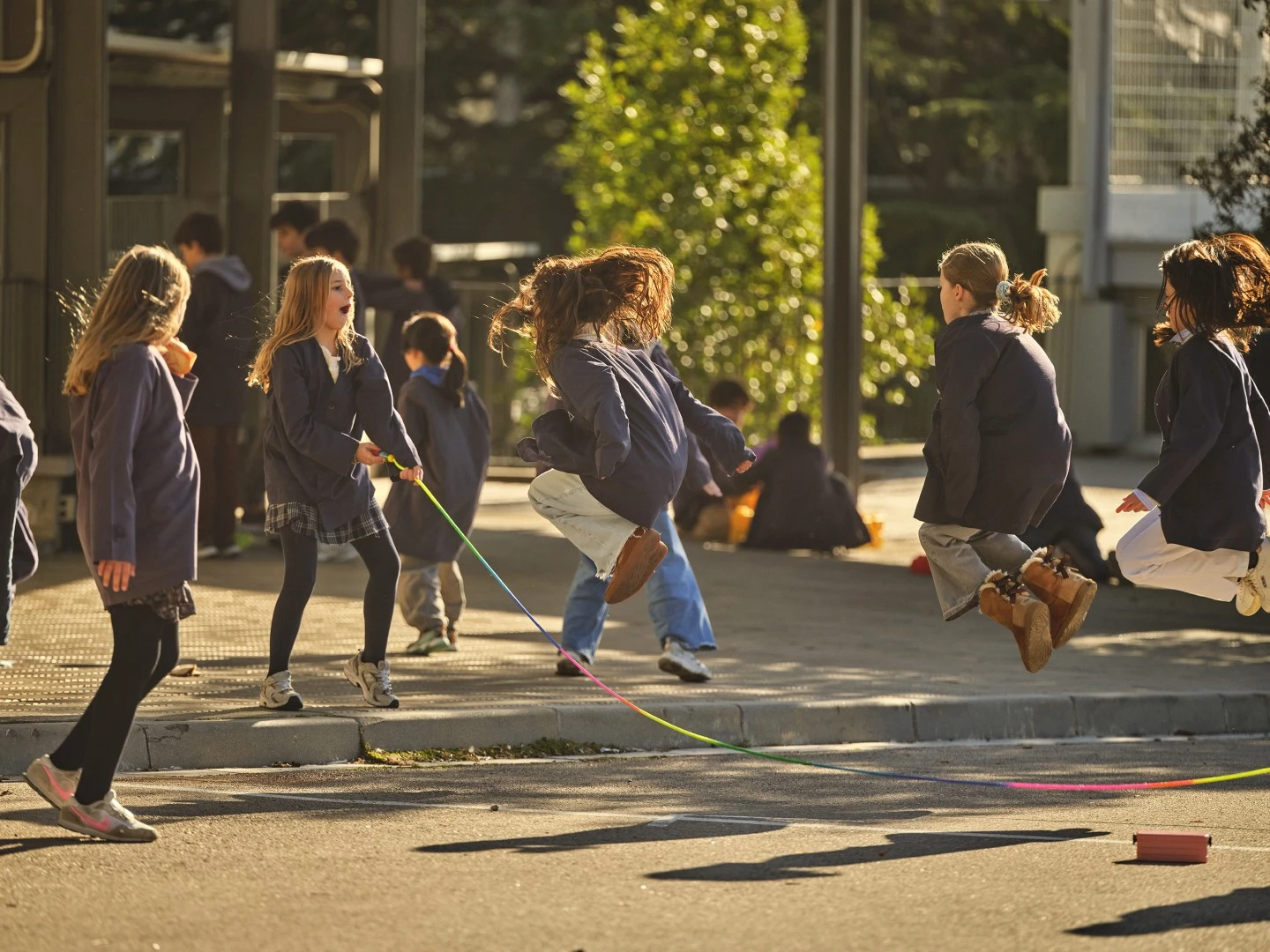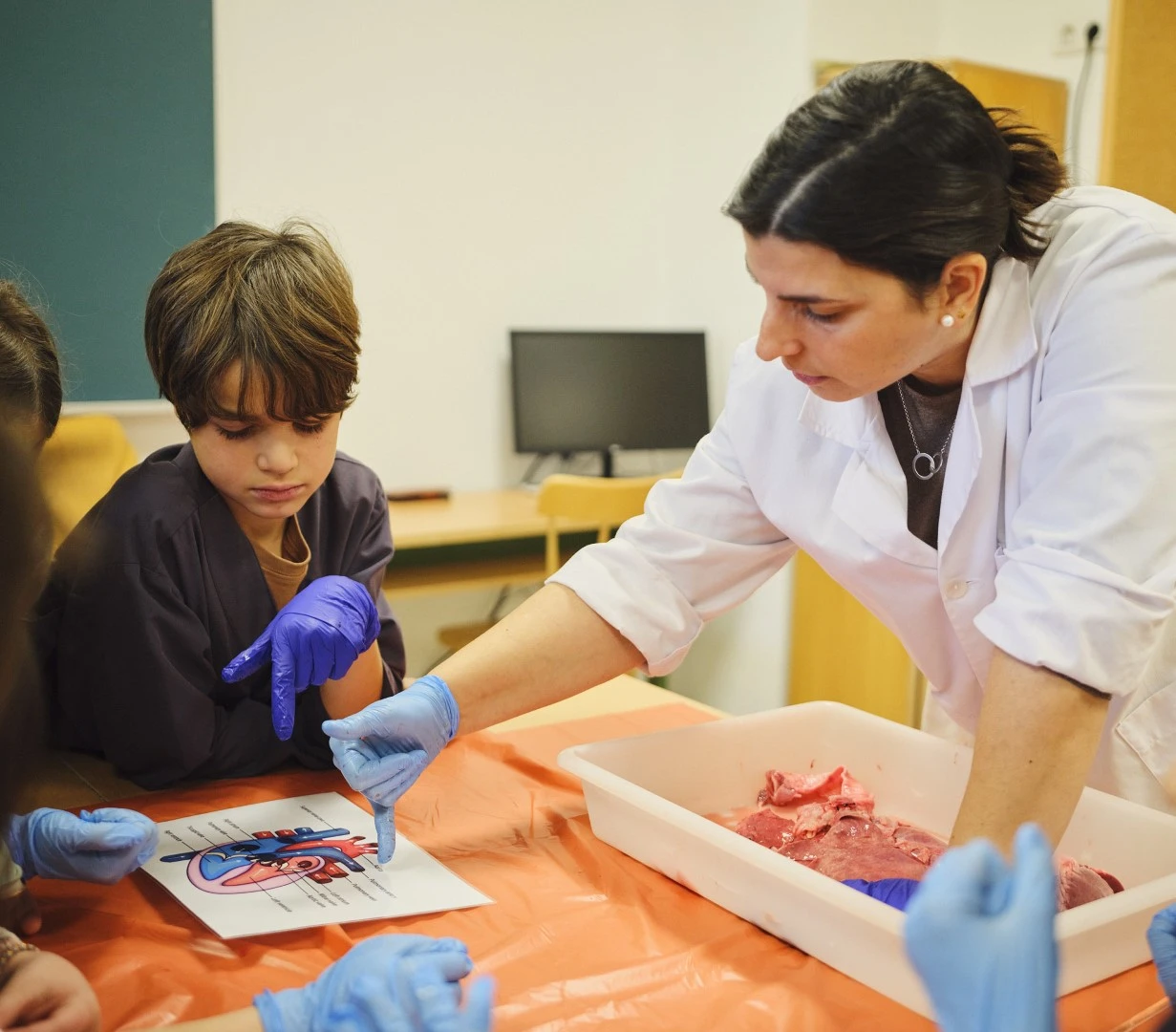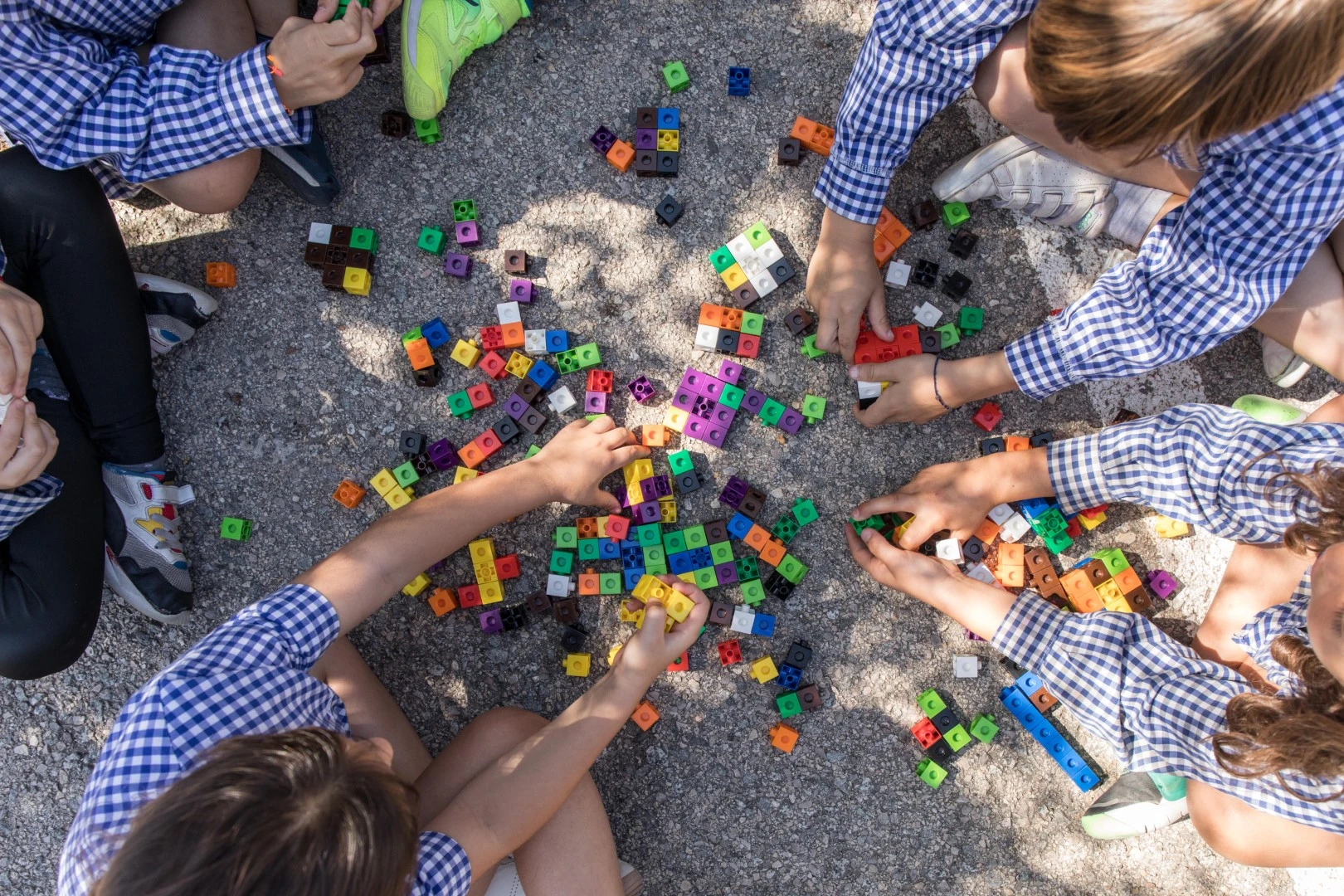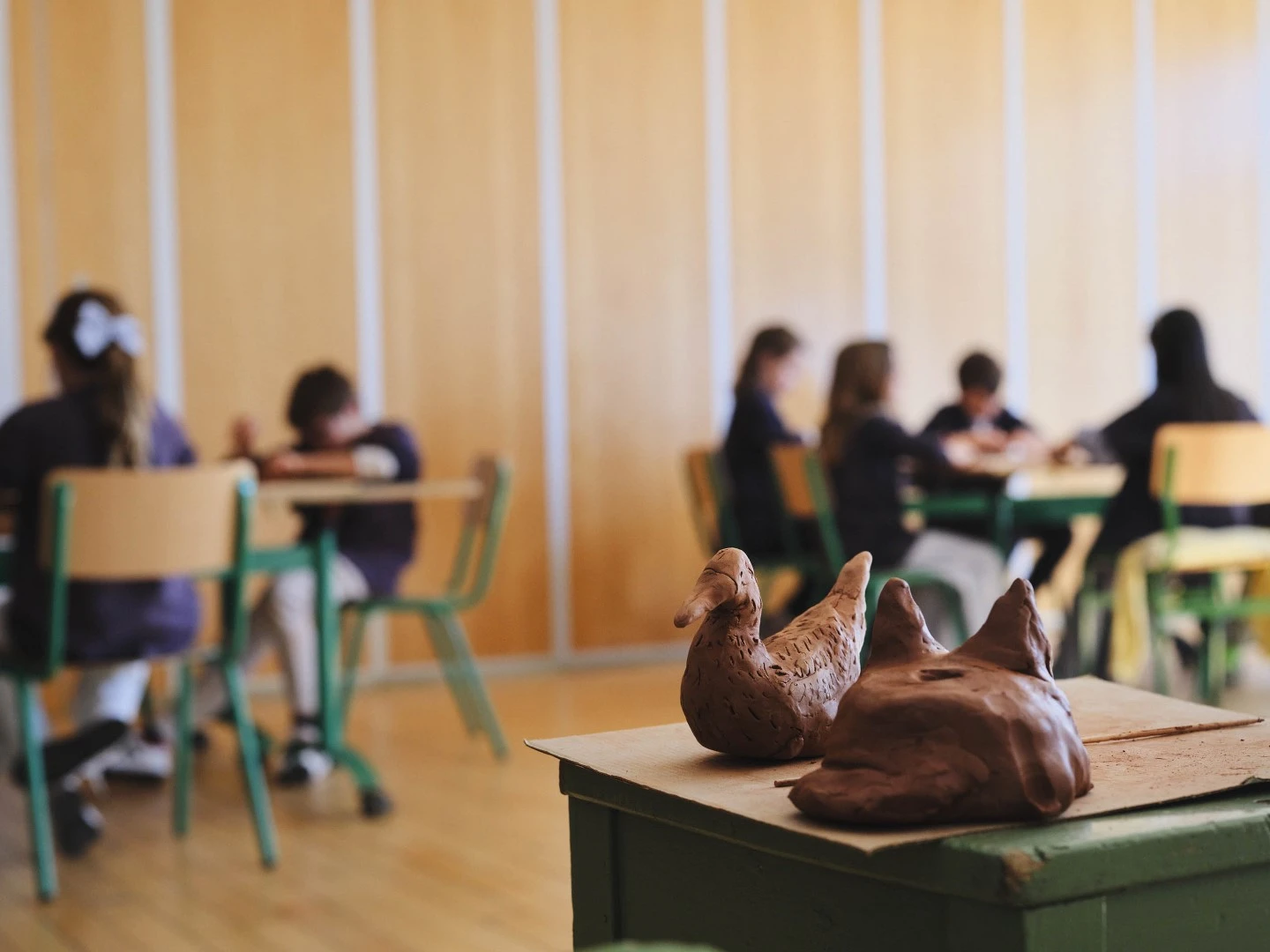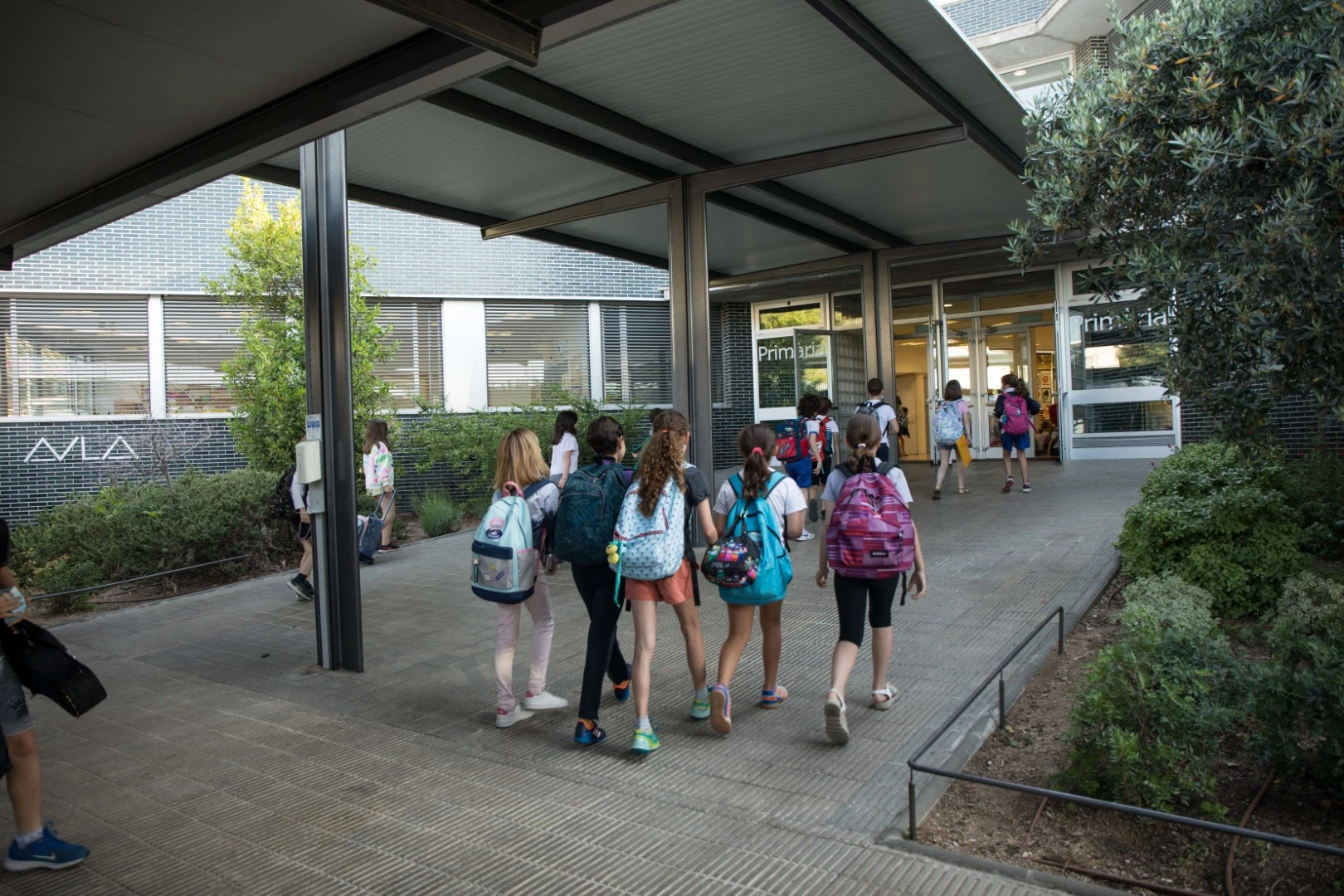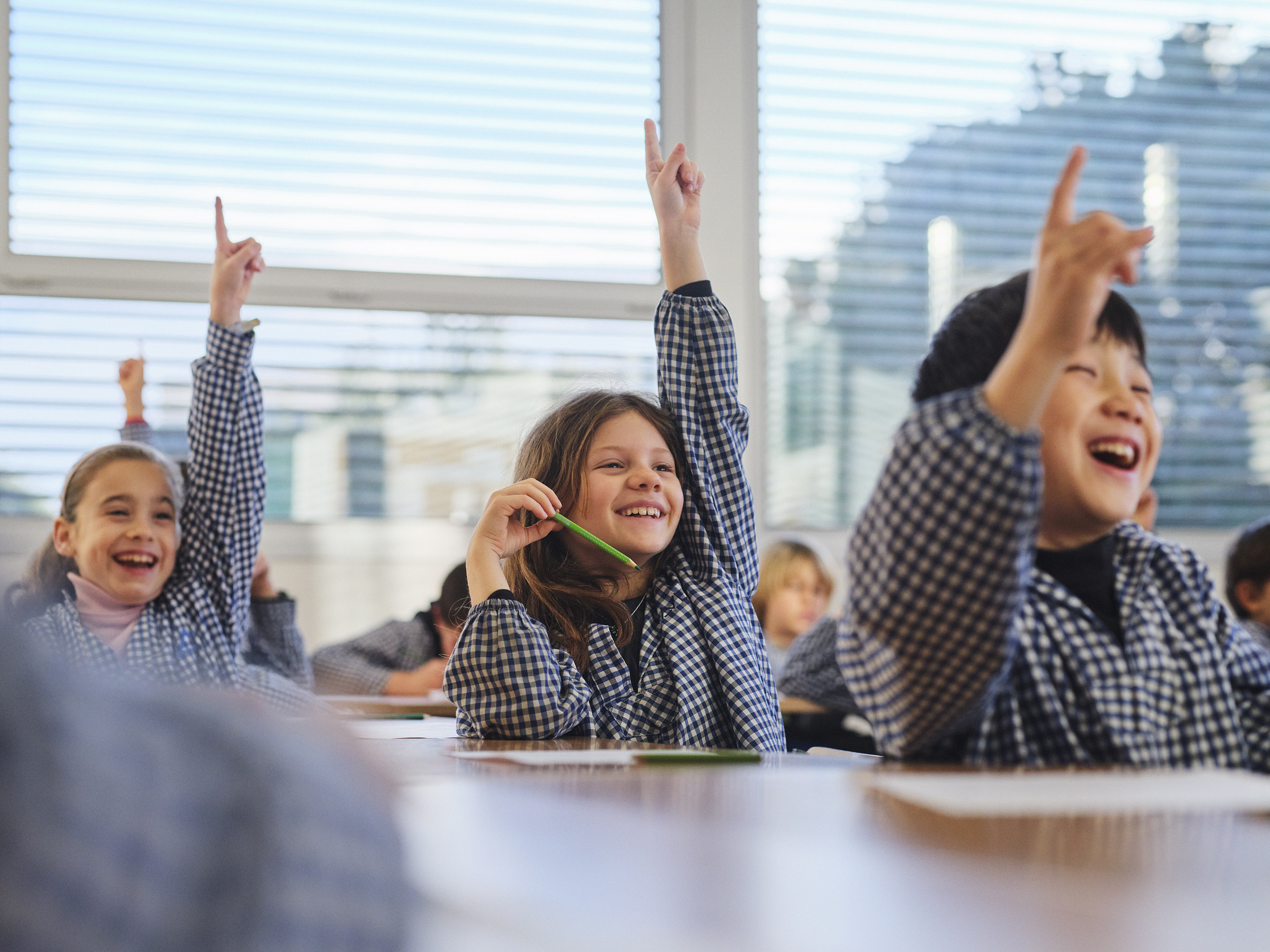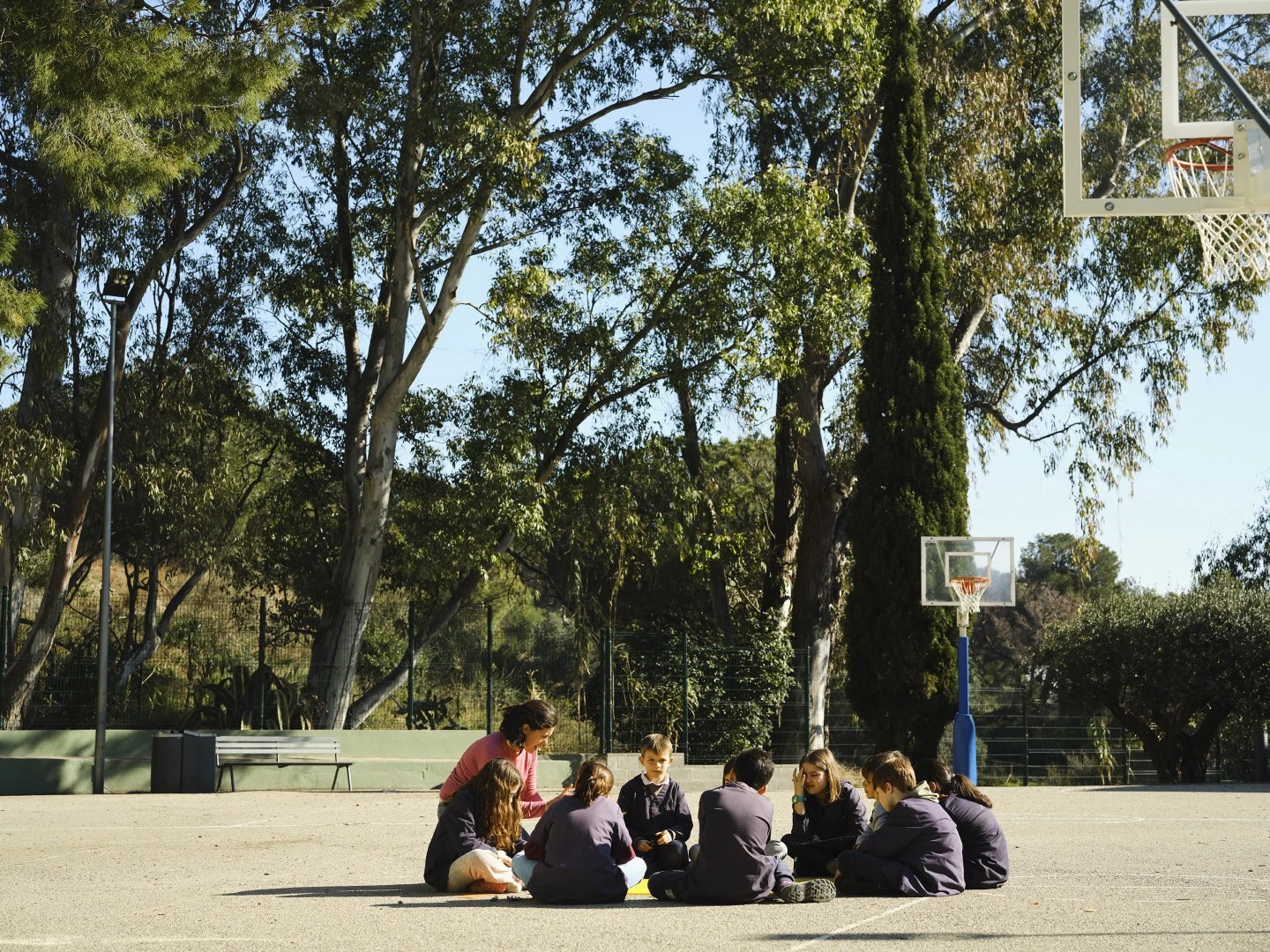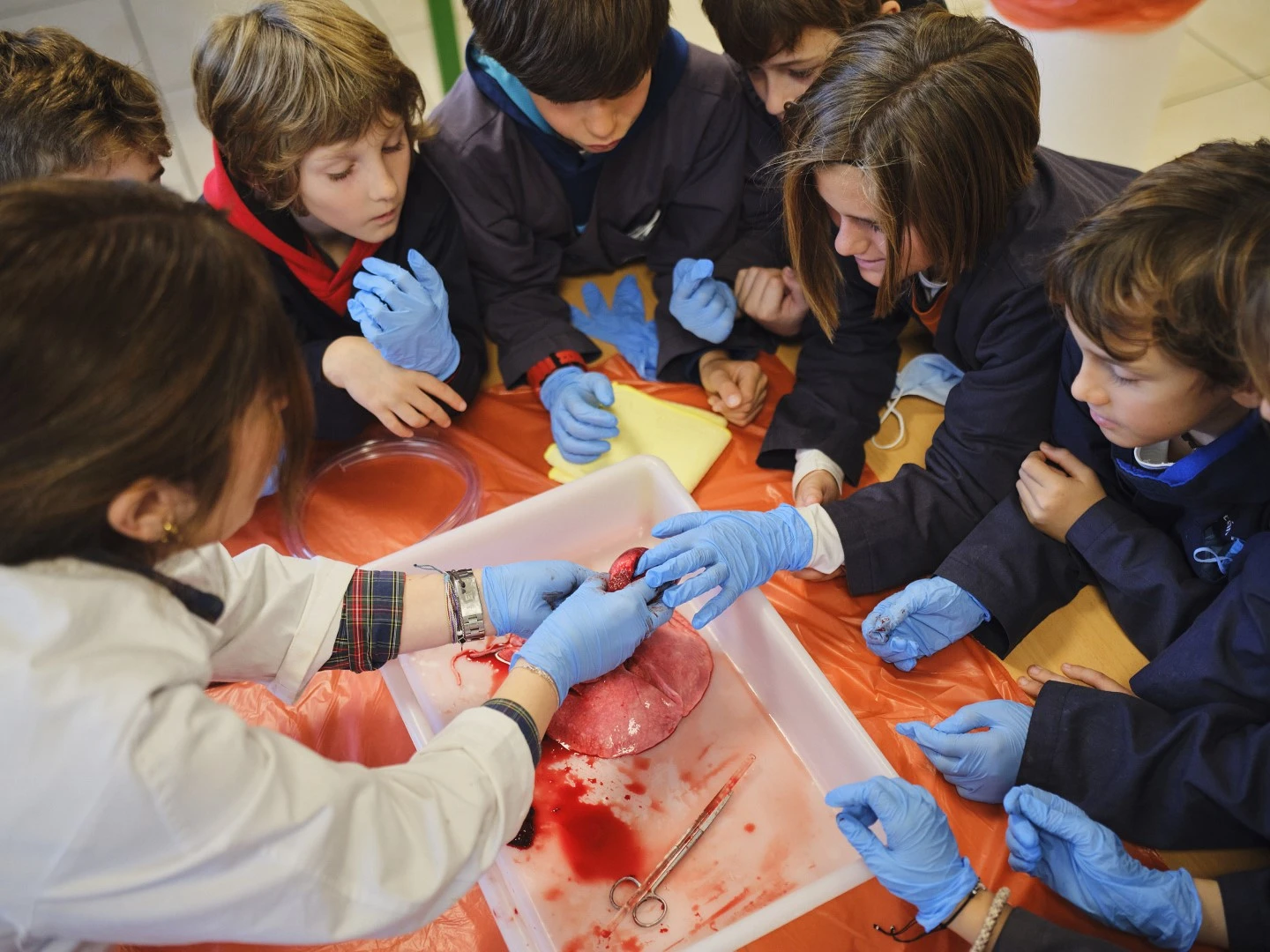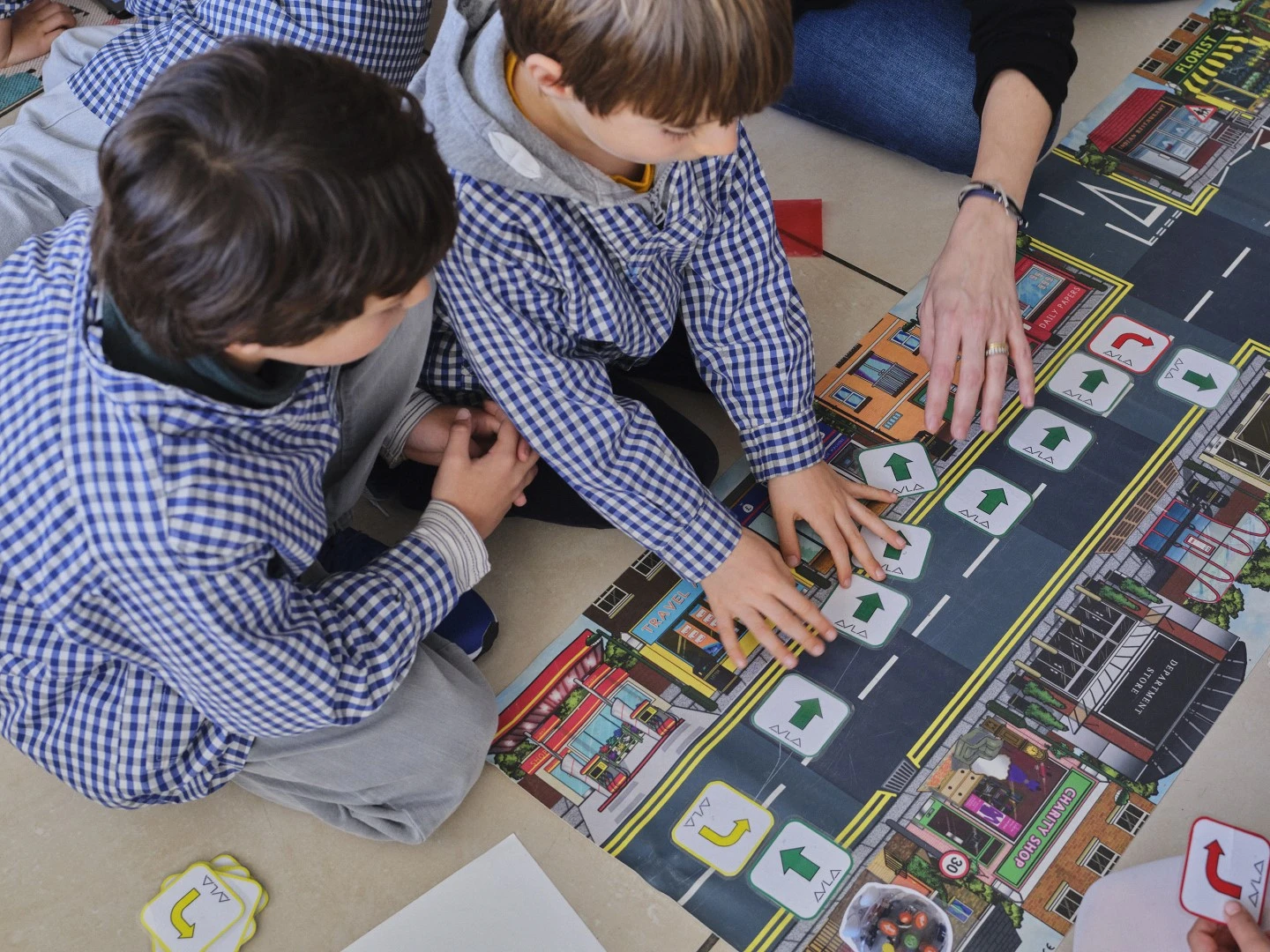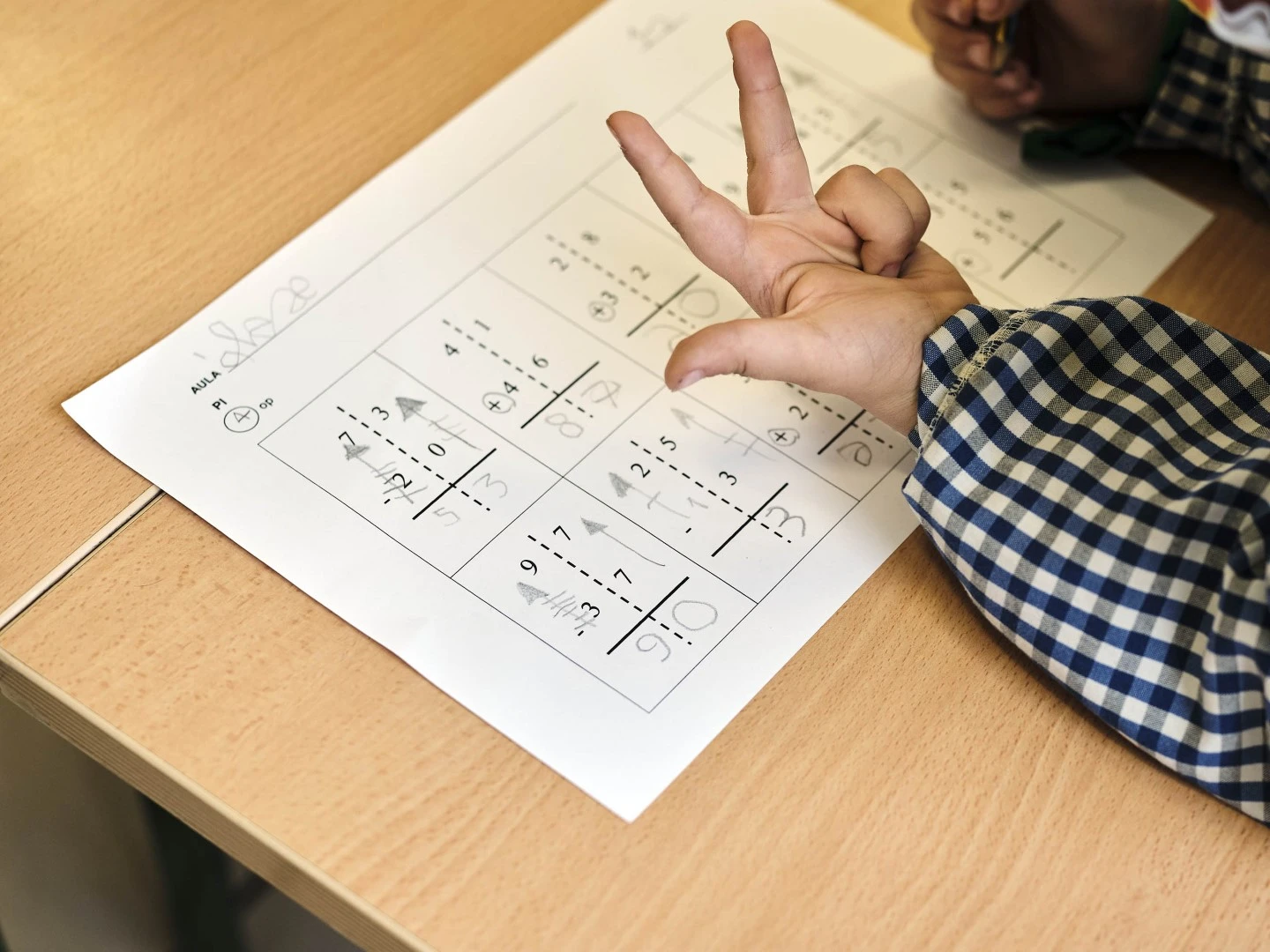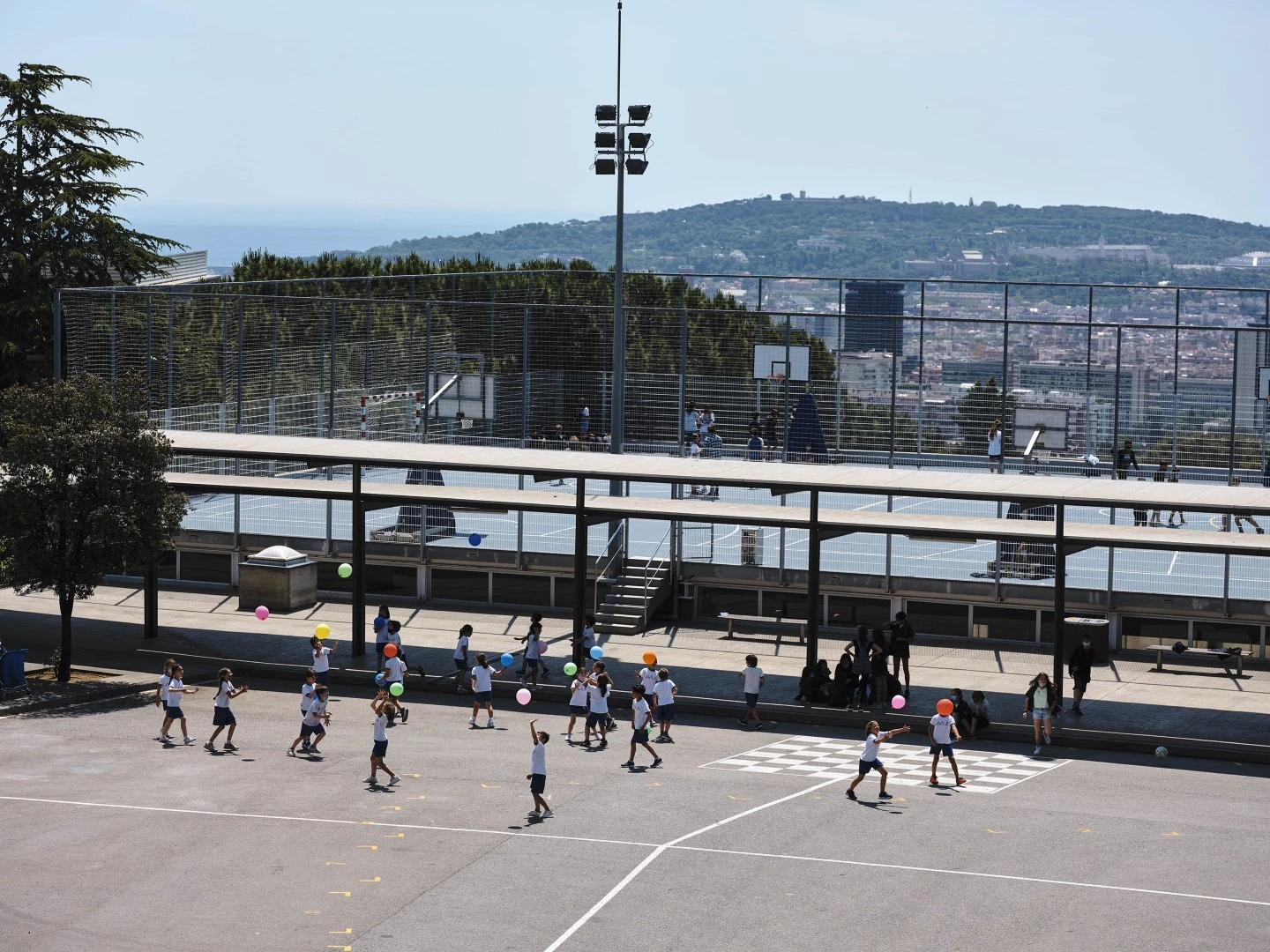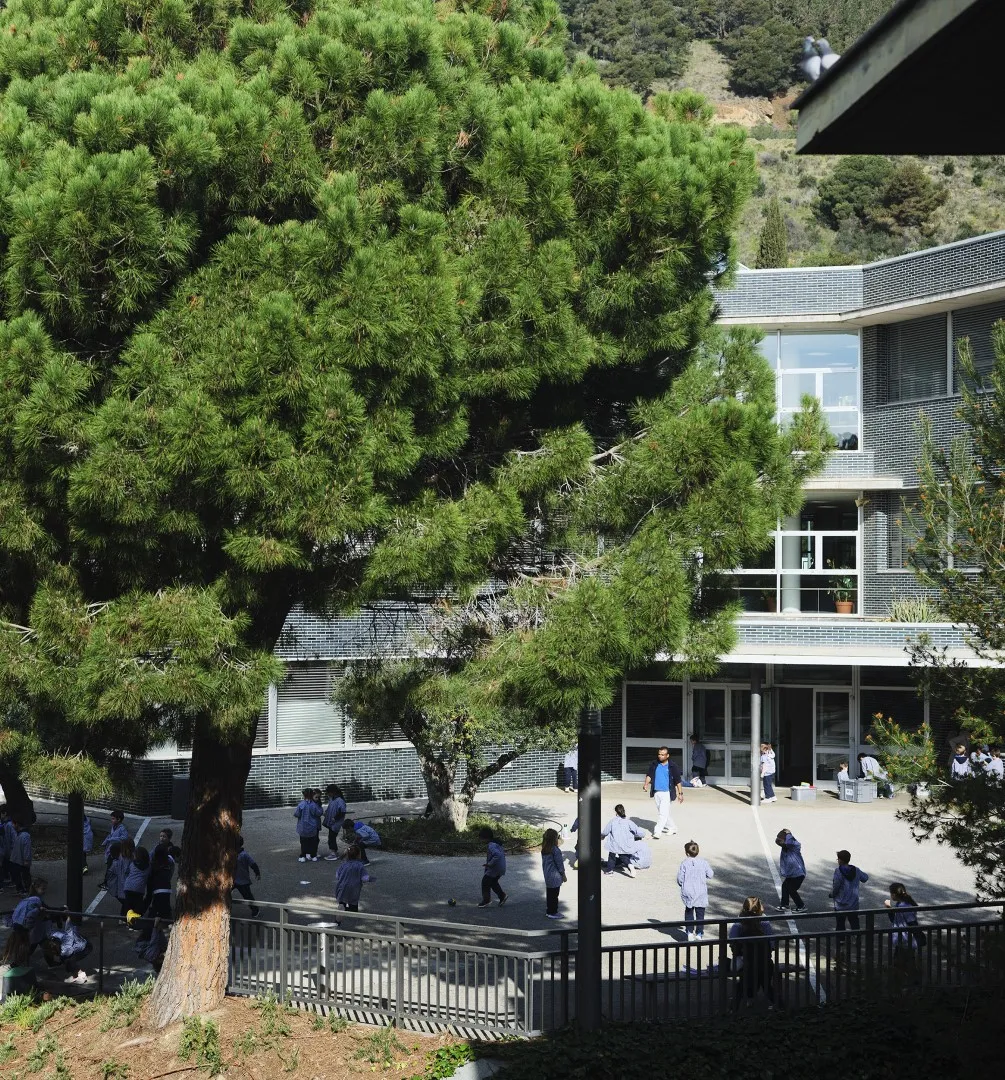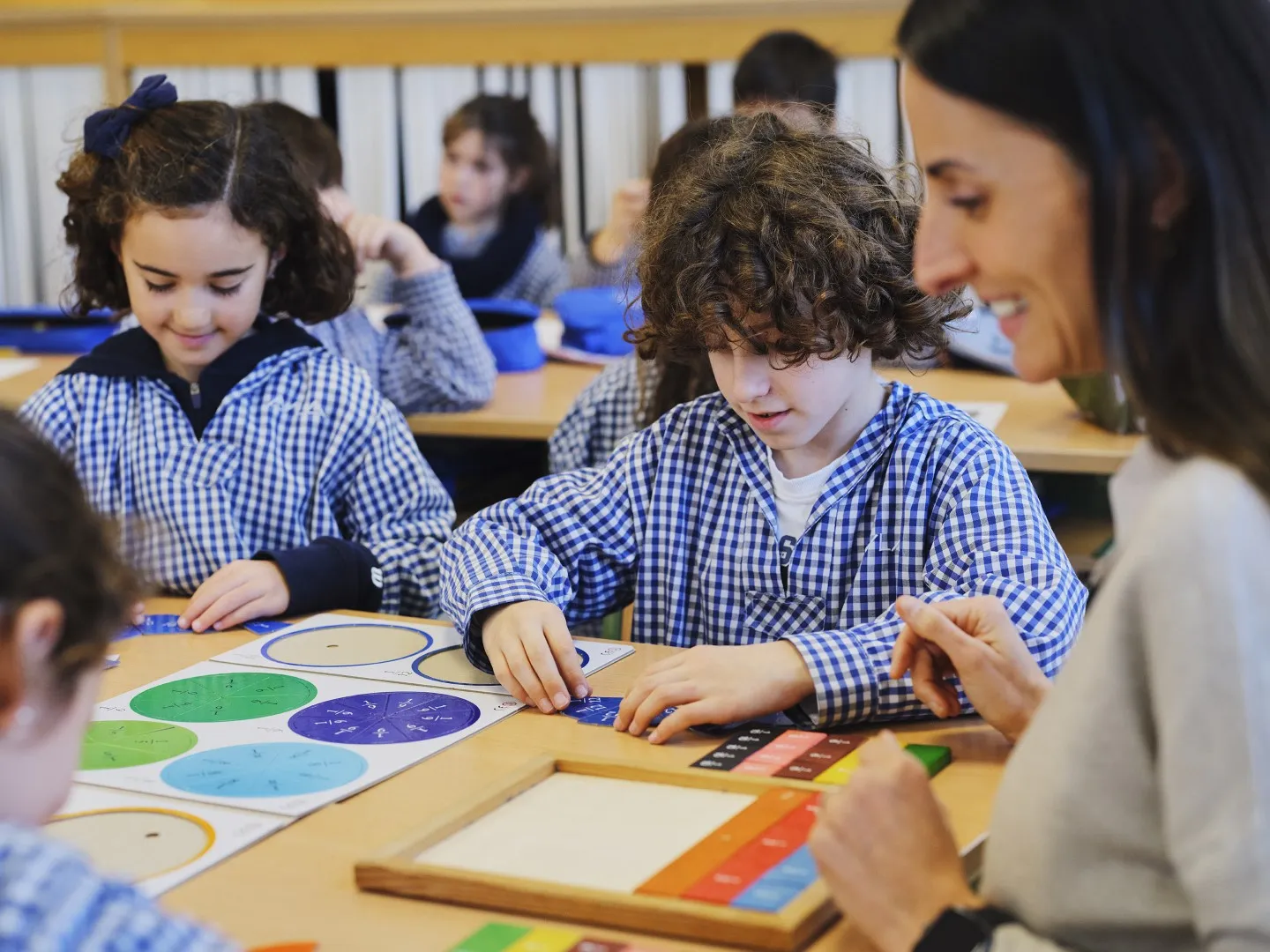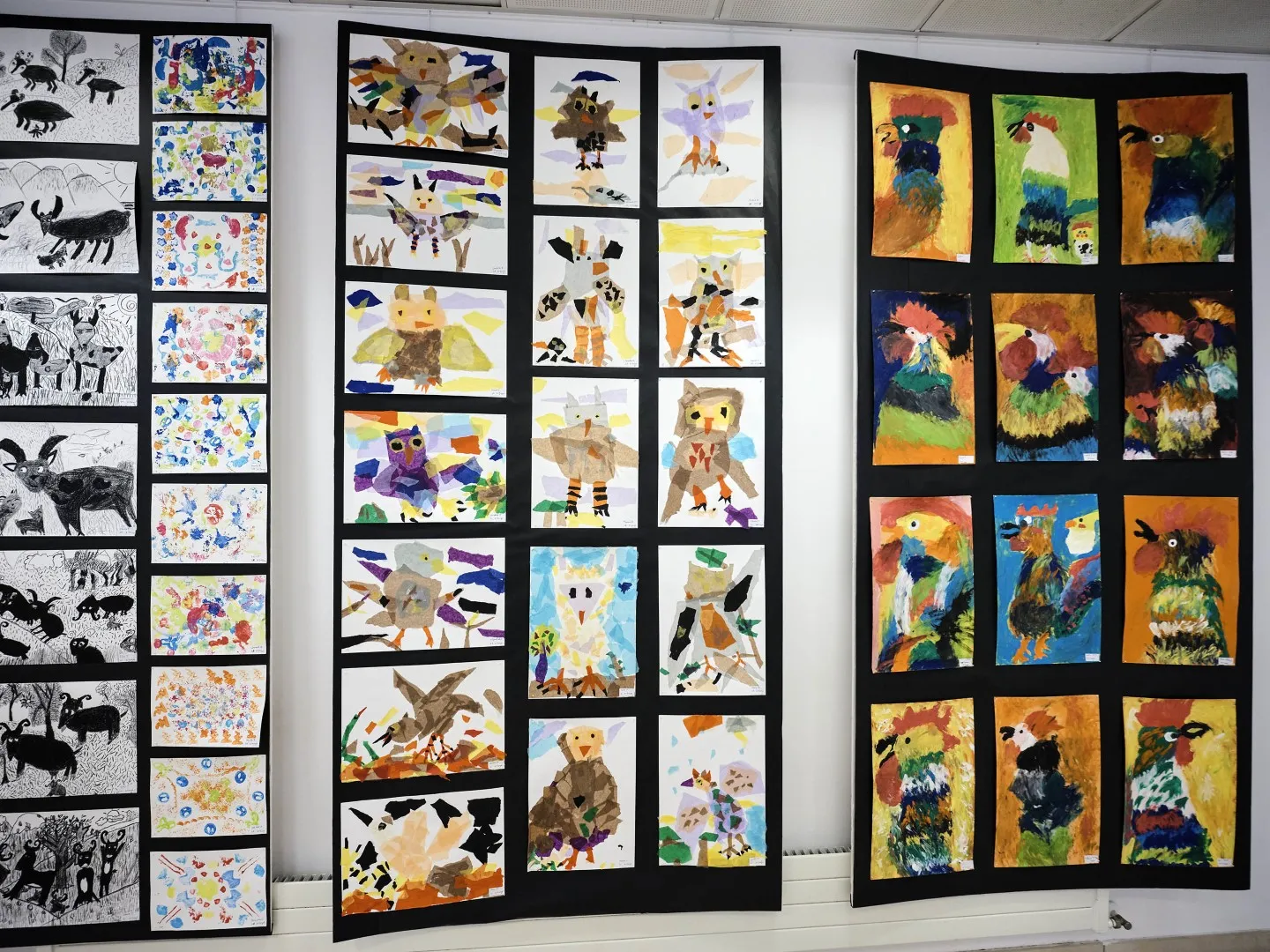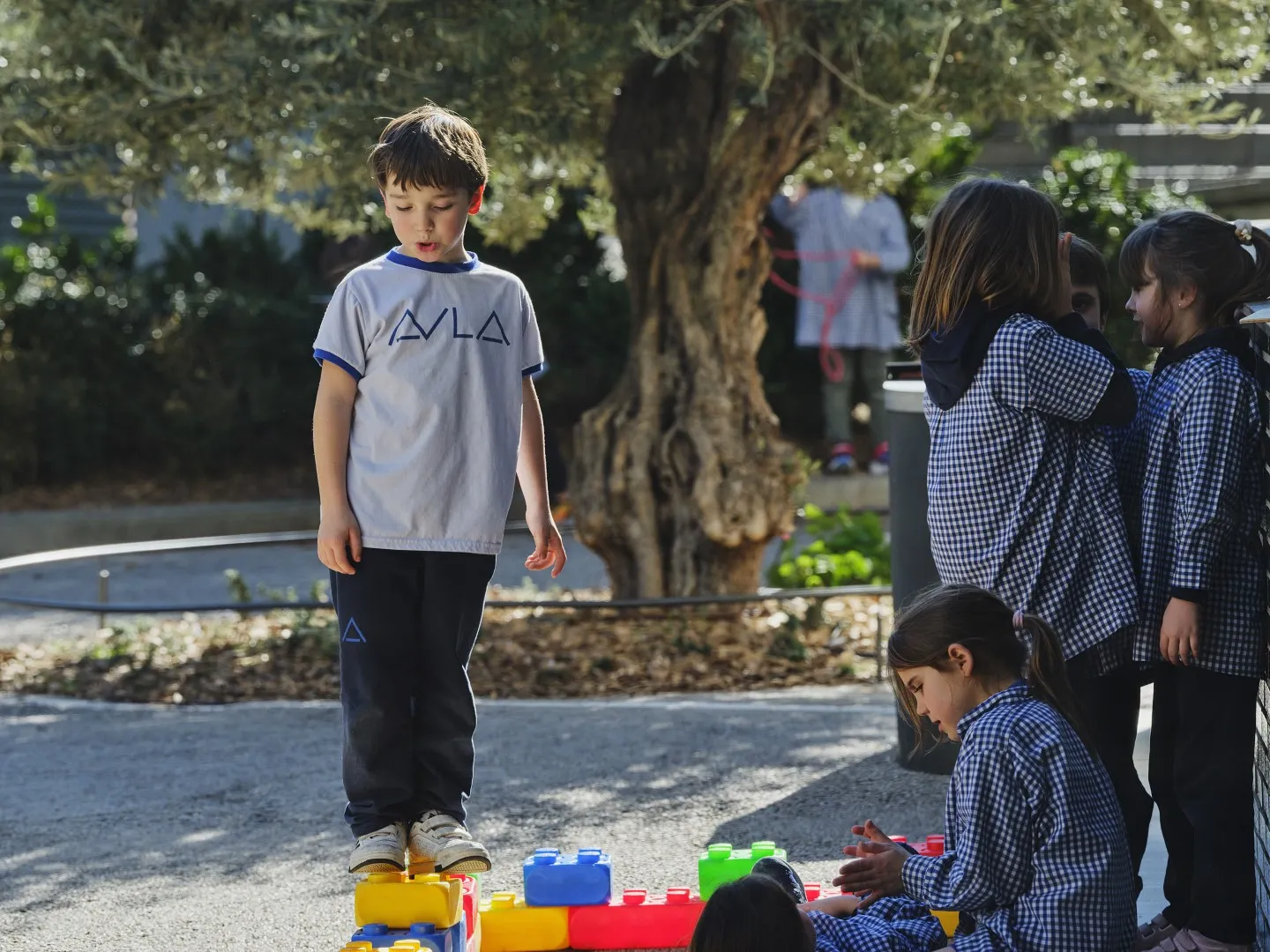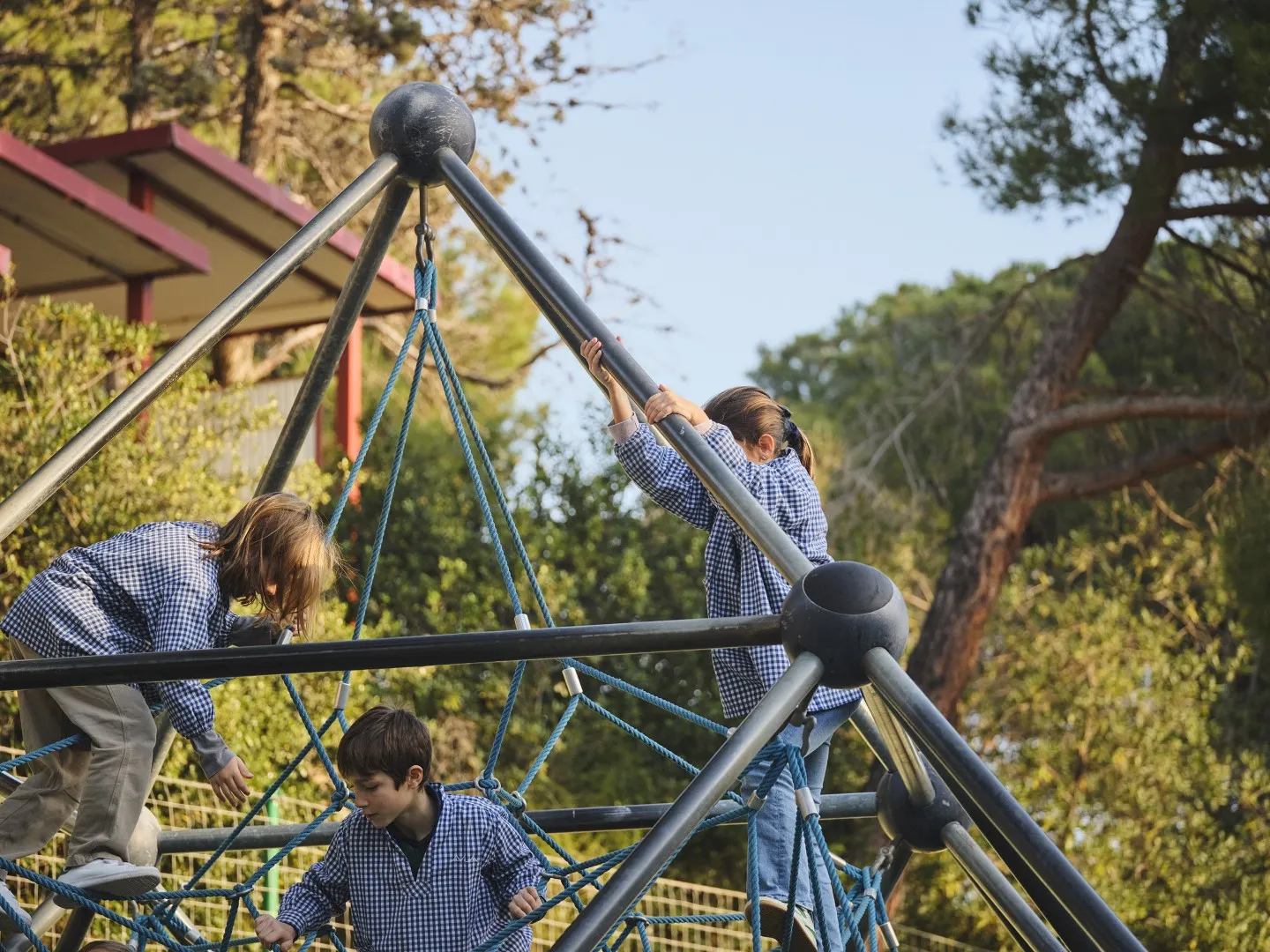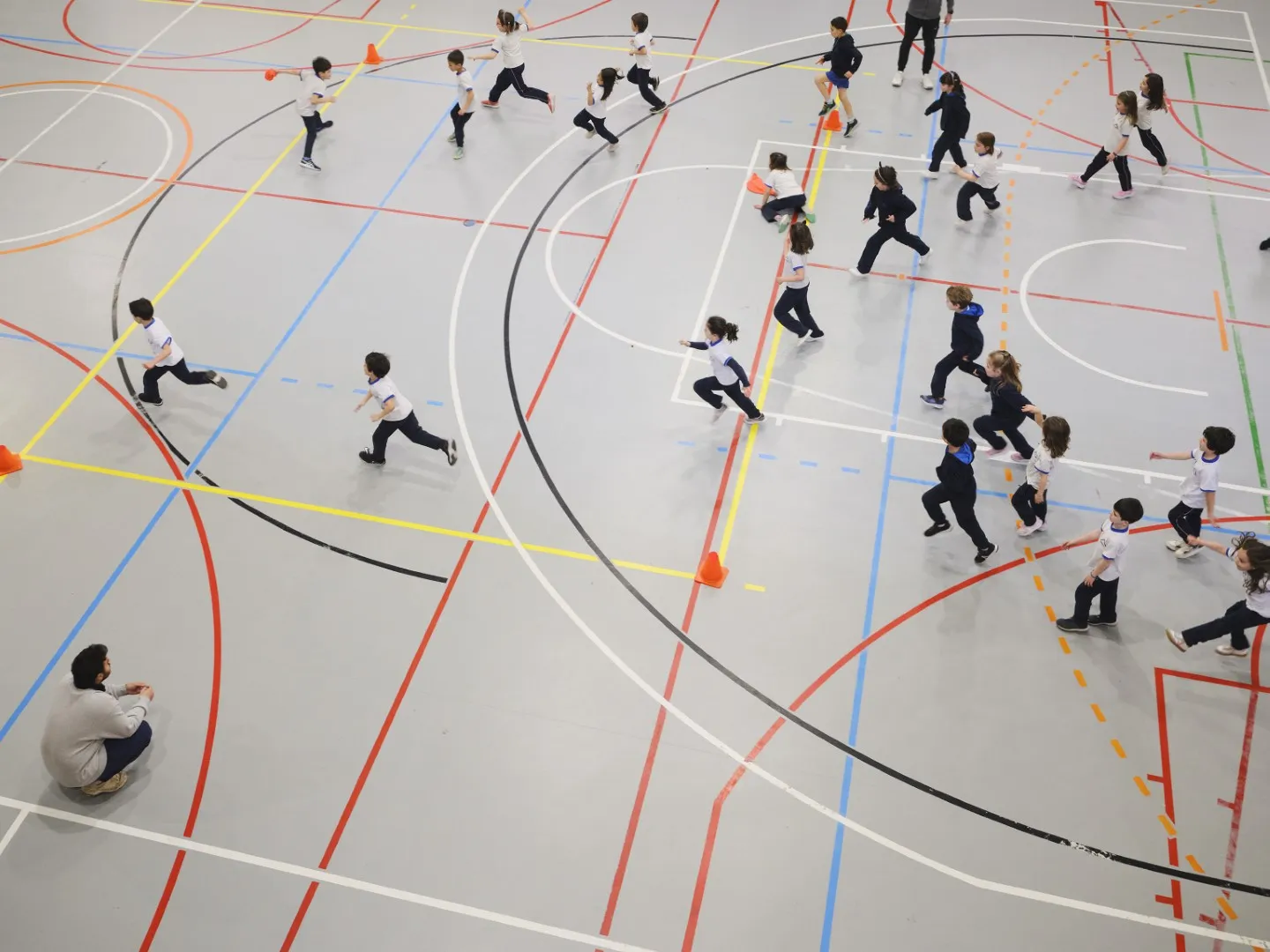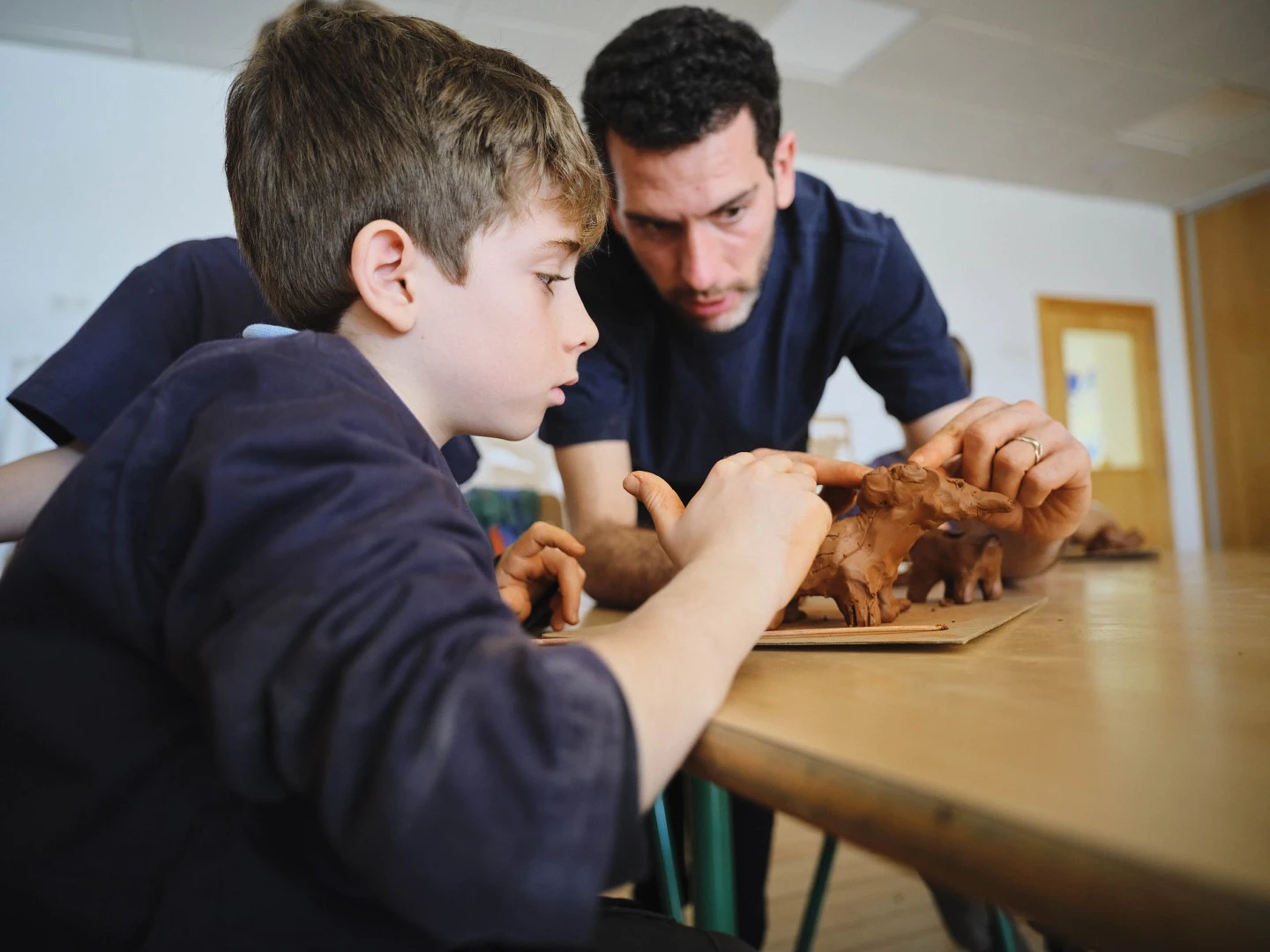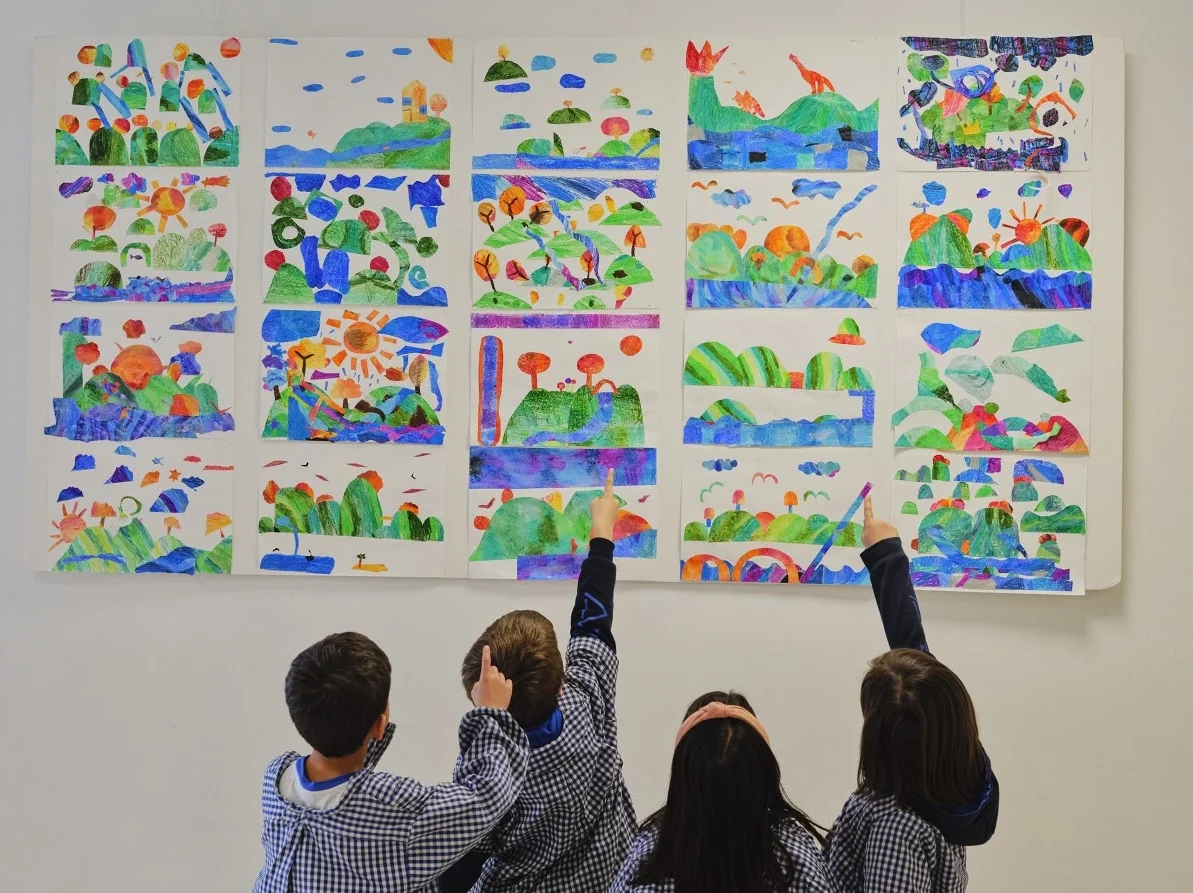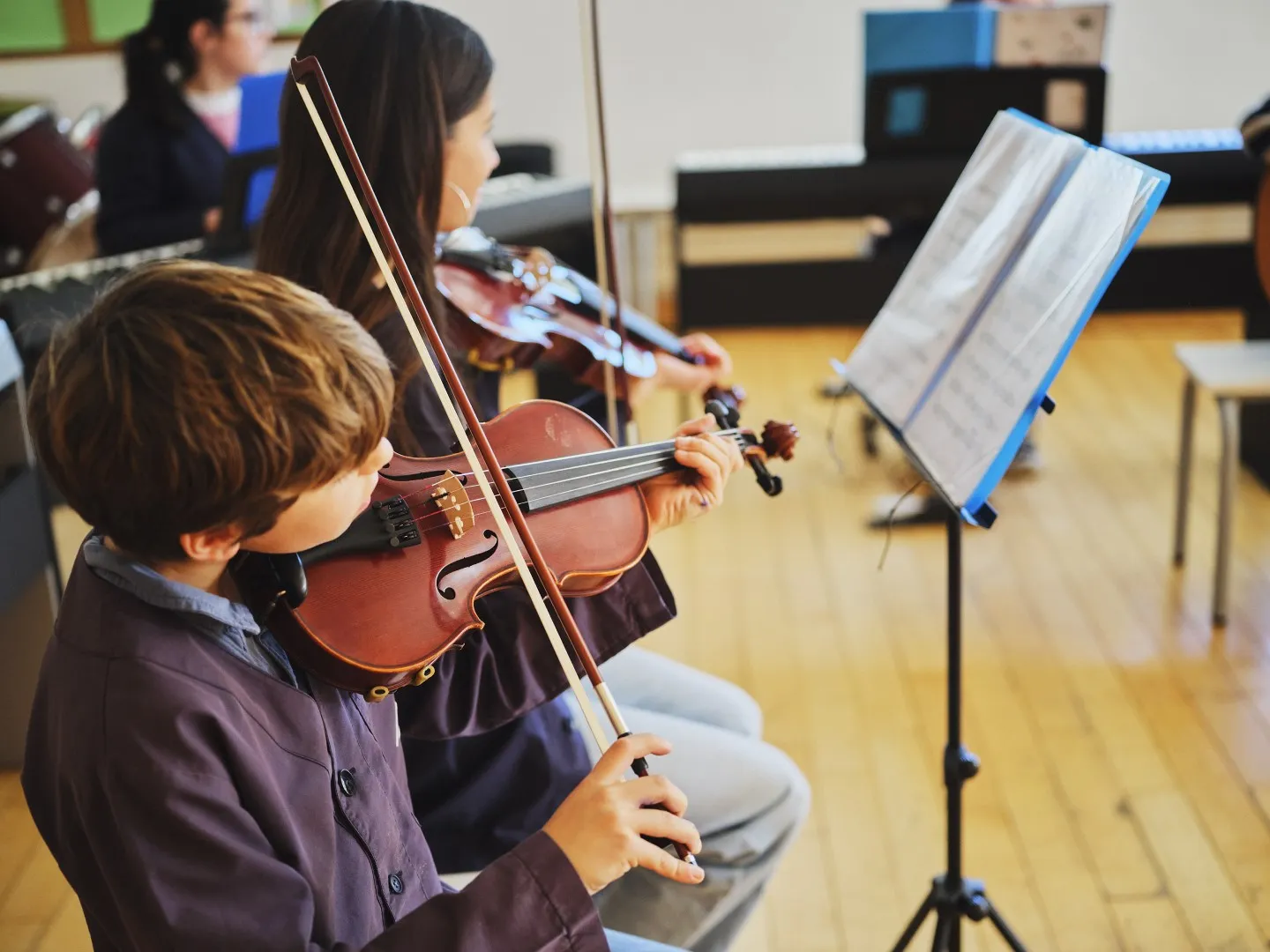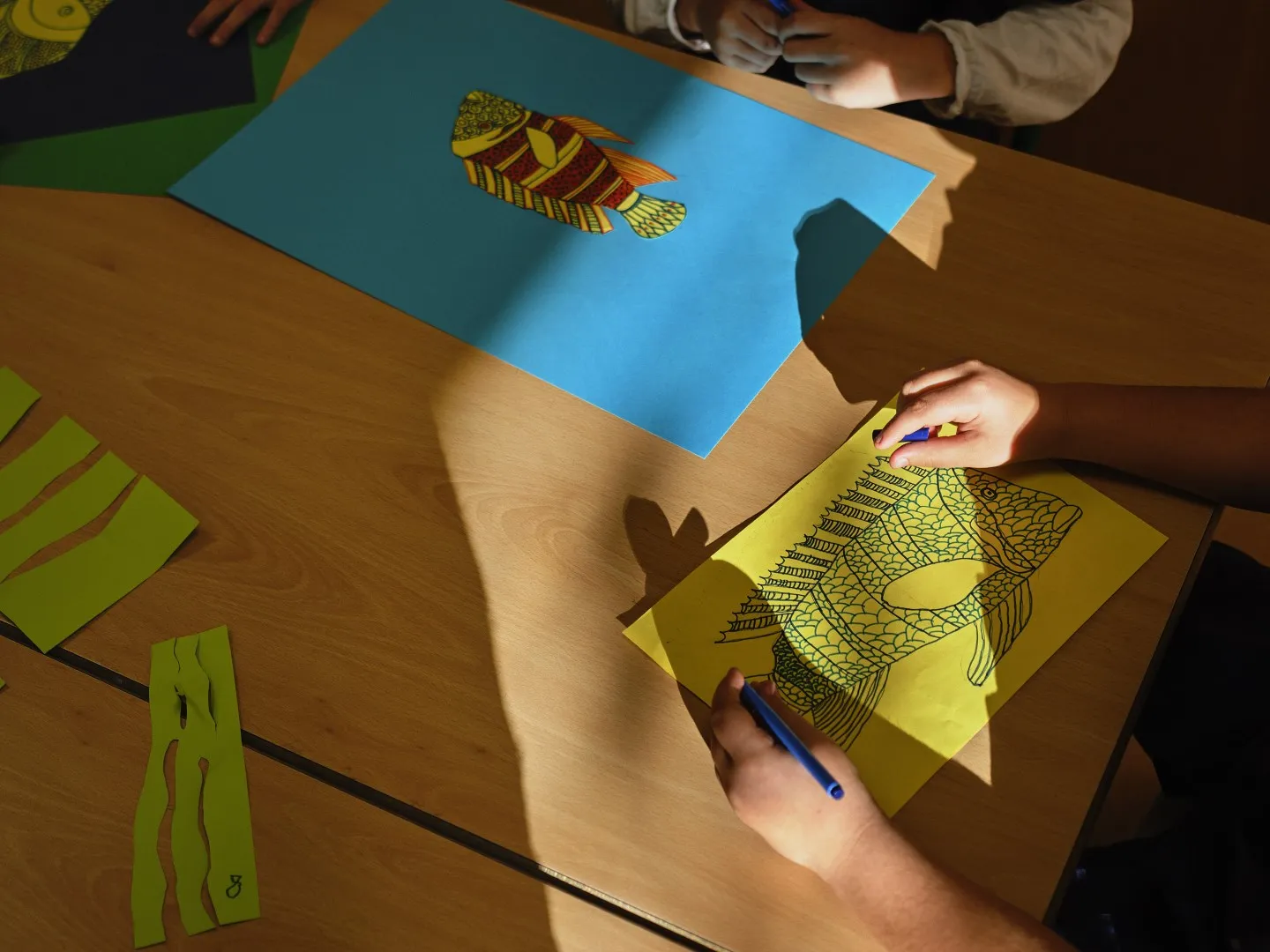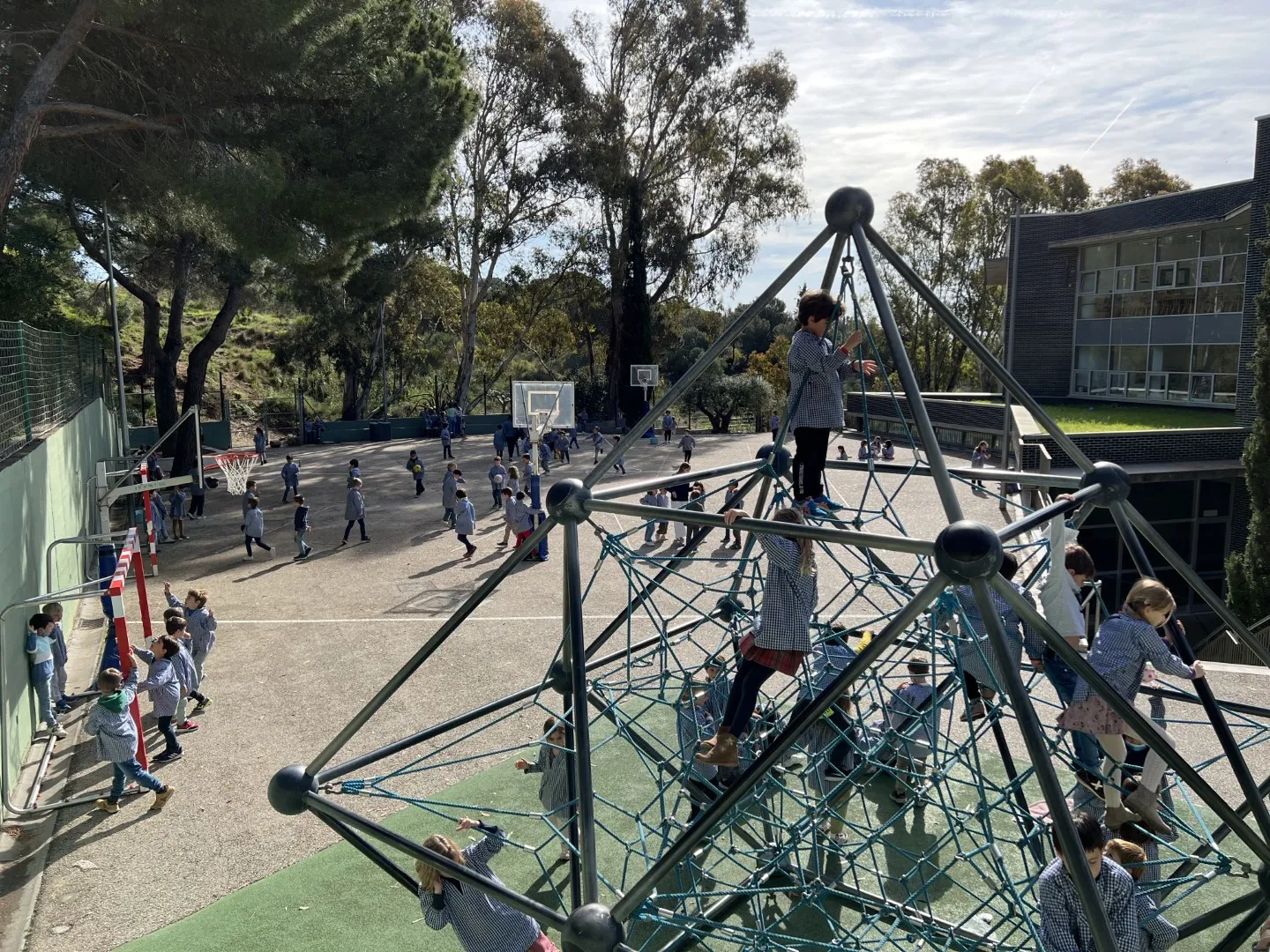Primary School
At Aula Escola Europea we support students by trusting their abilities, enhancing their autonomy, fostering their critical spirit and understanding mistakes as part of learning. We also stimulate their curiosity and creativity.
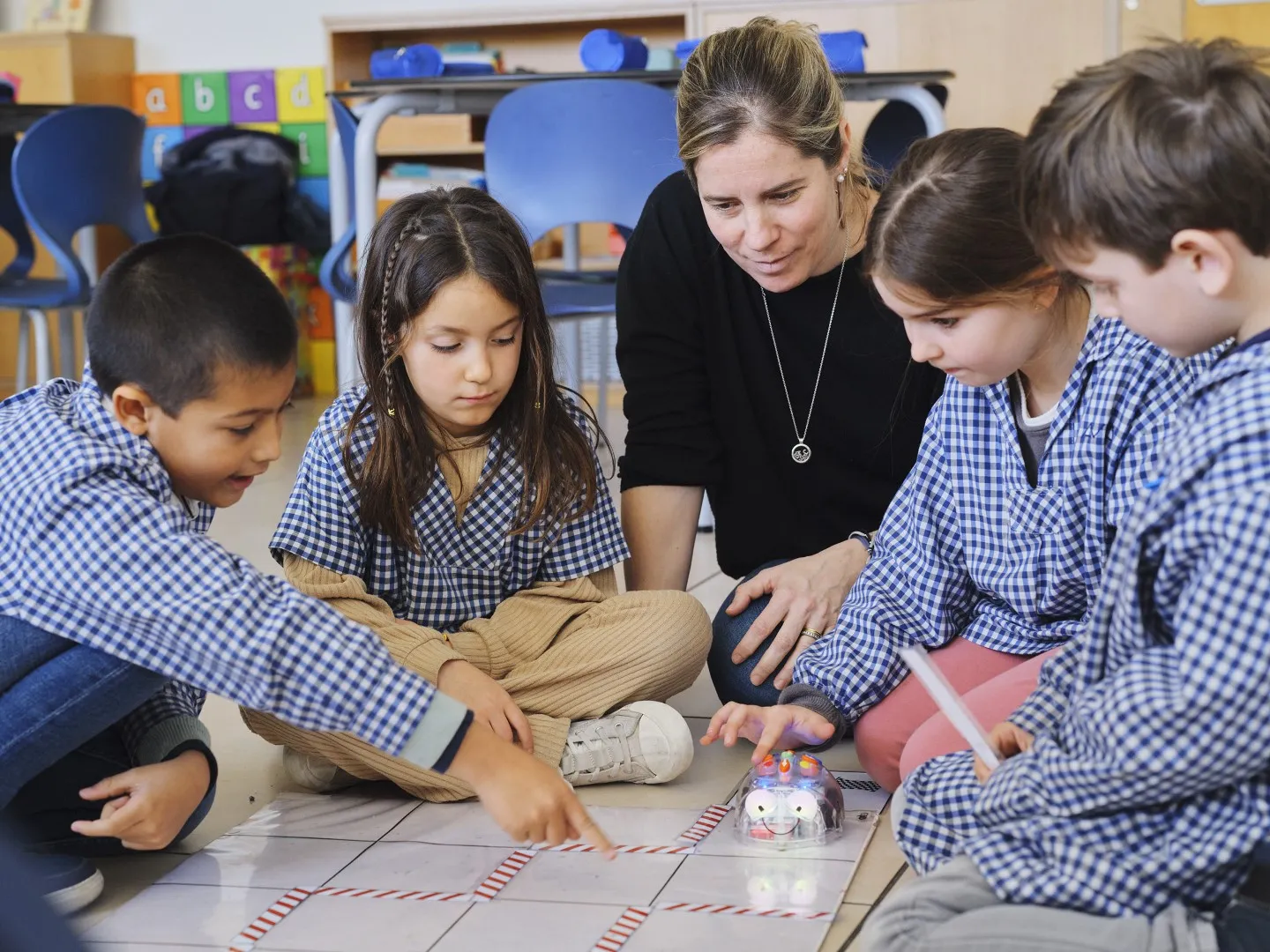
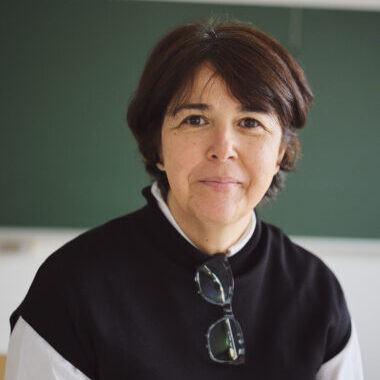
“At Aula we help students understand the world they live in and how to relate to it. At school they obtain the necessary resources to be creative, autonomous and to accept mistakes as part of learning”
Curriculum
During Primary school, students consolidate linguistic comprehension and expression skills, both oral and written.
Aside from the four languages, we delve into other languages (mathematical reasoning, computational thinking, scientific discovery, visual arts, music, and physical expression) so that they can express themselves fluently in any of these.
This is a stage where students have the capacity to understand the world they live in. They discover who they are and how they are, and we provide them with the tools to relate to their environment in a healthy way (development of socio-personal skills, Philia project).
It is a very important stage for promoting creativity in all areas. We nurture values that will enable students to fully develop their personality.
Students learn to:
- Stimulate curiosity, observation and experimentation.
- Develop creativity and critical thinking.
- Get to know each other, learn to respect others, work together and develop a social conscience.
- Embrace social and cultural diversity, and differences in ways of thinking and opinions.
- Work in a team to maximize their potential.
- Understand the culture of hard work and discover the pleasure of doing things well.
- Acquire the habits and knowledge necessary to face the future with autonomy, security and reflection.
- Develop a proactive, persevering and happy attitude.
Methodology
The student is at the centre of their learning.
Teaching staff
- Each group has a tutor, a reference person who accompanies them throughout their learning process, both personal and academic.
- Specialist teachers in foreign languages, computational thinking, music and visual arts, physical education.
- Shared teaching: consists of collaboration between two teachers in a classroom, throughout the learning process with the common goal of developing effective educational practices for all students, regardless of their abilities. Shared teaching allows for closer monitoring of students and more effective support.
- The tutors, management, and a psychologist from the Department of Psychopedagogical Guidance work together for the well-being of the students through continuous monitoring.
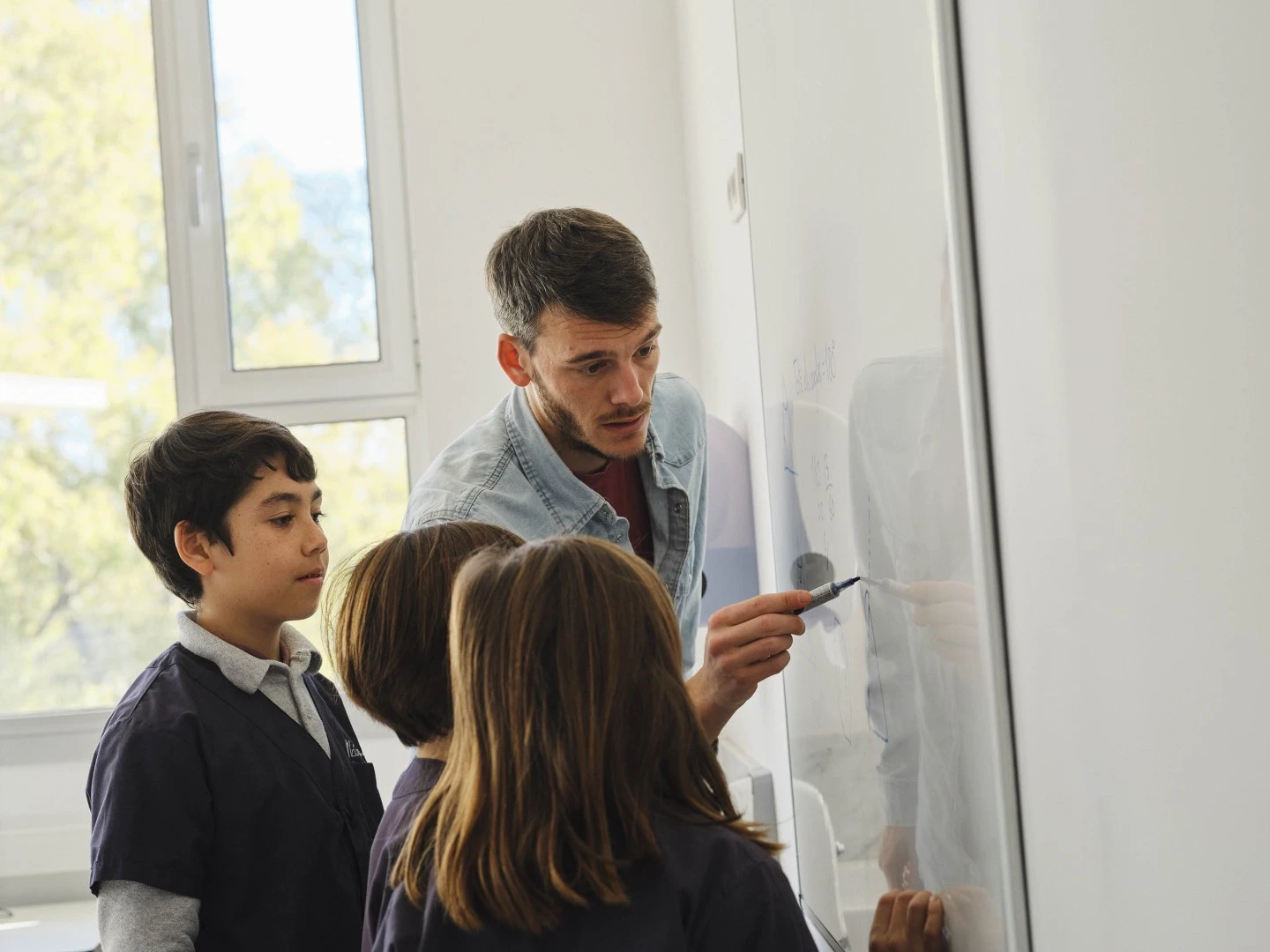
Album, textbooks and reading
During Primary school, students take an active part in the creation of their school material. Teachers prepare the suitable material for each class and throughout the academic year the students compile these materials into their own album. This means that students do not use textbooks during the early years of Primary school.
Throughout the academic year, students engage in reading different books and texts. At the library they have access to books, magazines and newspapers, arranged by age group, in all of the school’s four vehicular languages.
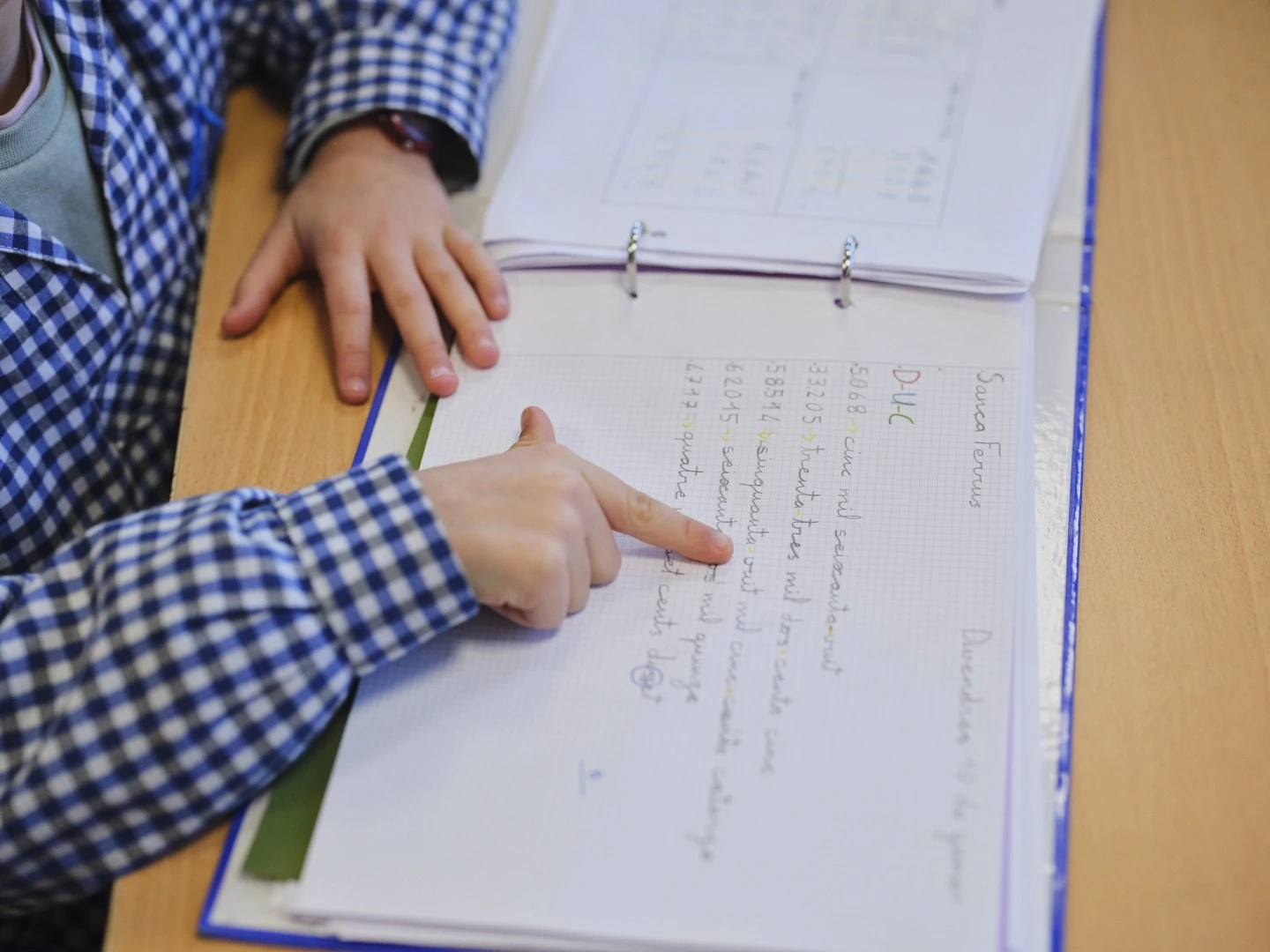
Special Project: love of reading
Reading is one of the main gateways to knowledge and an essential source for building critical thinking.
Reading sets us free and makes us wiser; that is why we provide students with the tools to develop a love for reading, to cultivate a desire that extends beyond the school and becomes rooted in their lives, accompanying them wherever they go.
For this reason, in Primary school, in addition to working on fluent reading mechanics and good text comprehension, we strive to stimulate those more subjective aspects related to reading: we help students develop a keen reader’s judgement, provide spaces where they can immerse themselves in a good book, and accompany them in the discovery of new literary worlds.
We have a librarian dedicated to accompanying students in their choice of books, who facilitates the activity in the media library, and collaborates with teachers to ensure that reading is part of the daily lives of students.
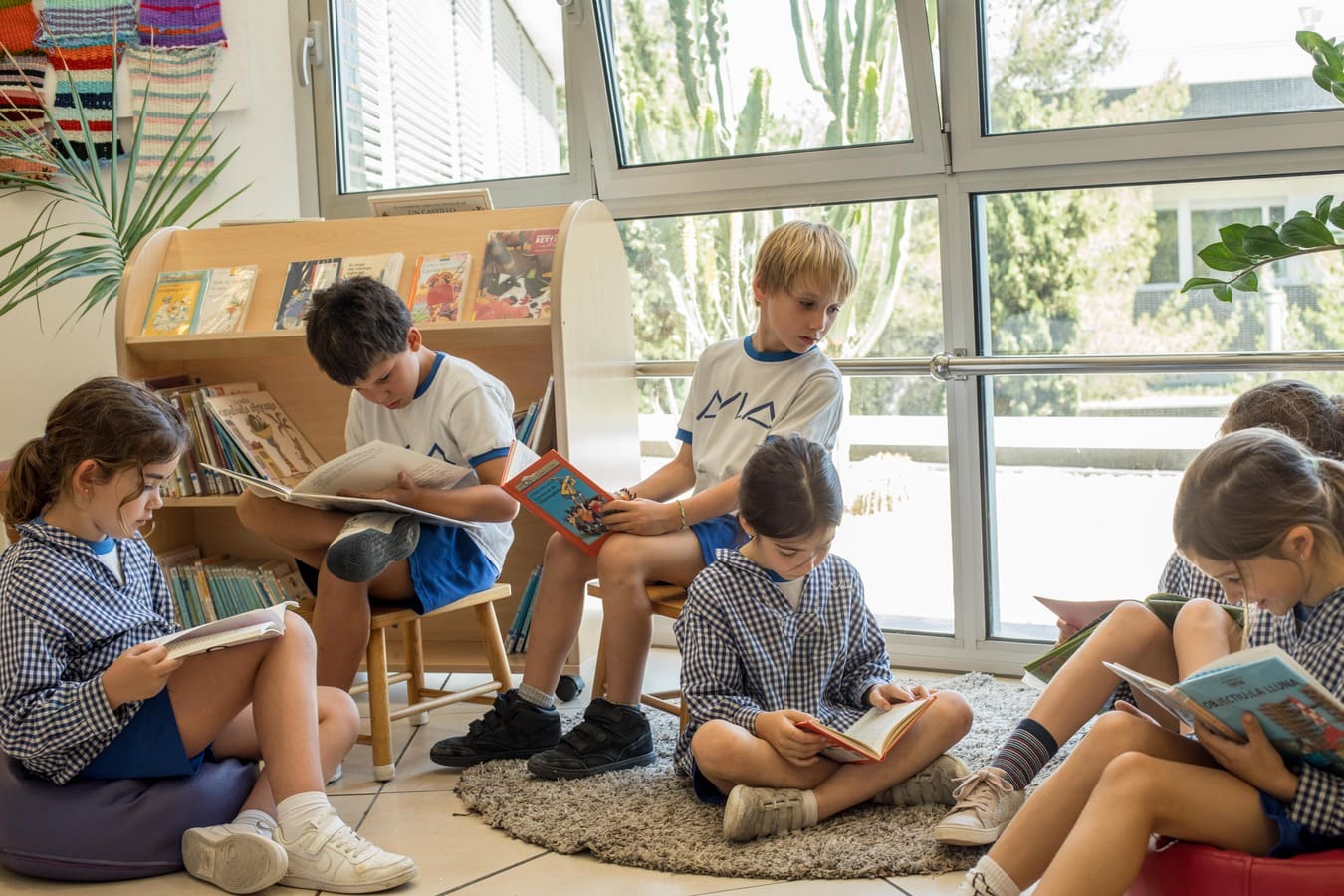
Foreign languages
It is in Primary where oral expression and comprehension are consolidated, and where reading and written expression in these languages begin.
Aside from language classes, some subjects, including drama, are taught in English and French.
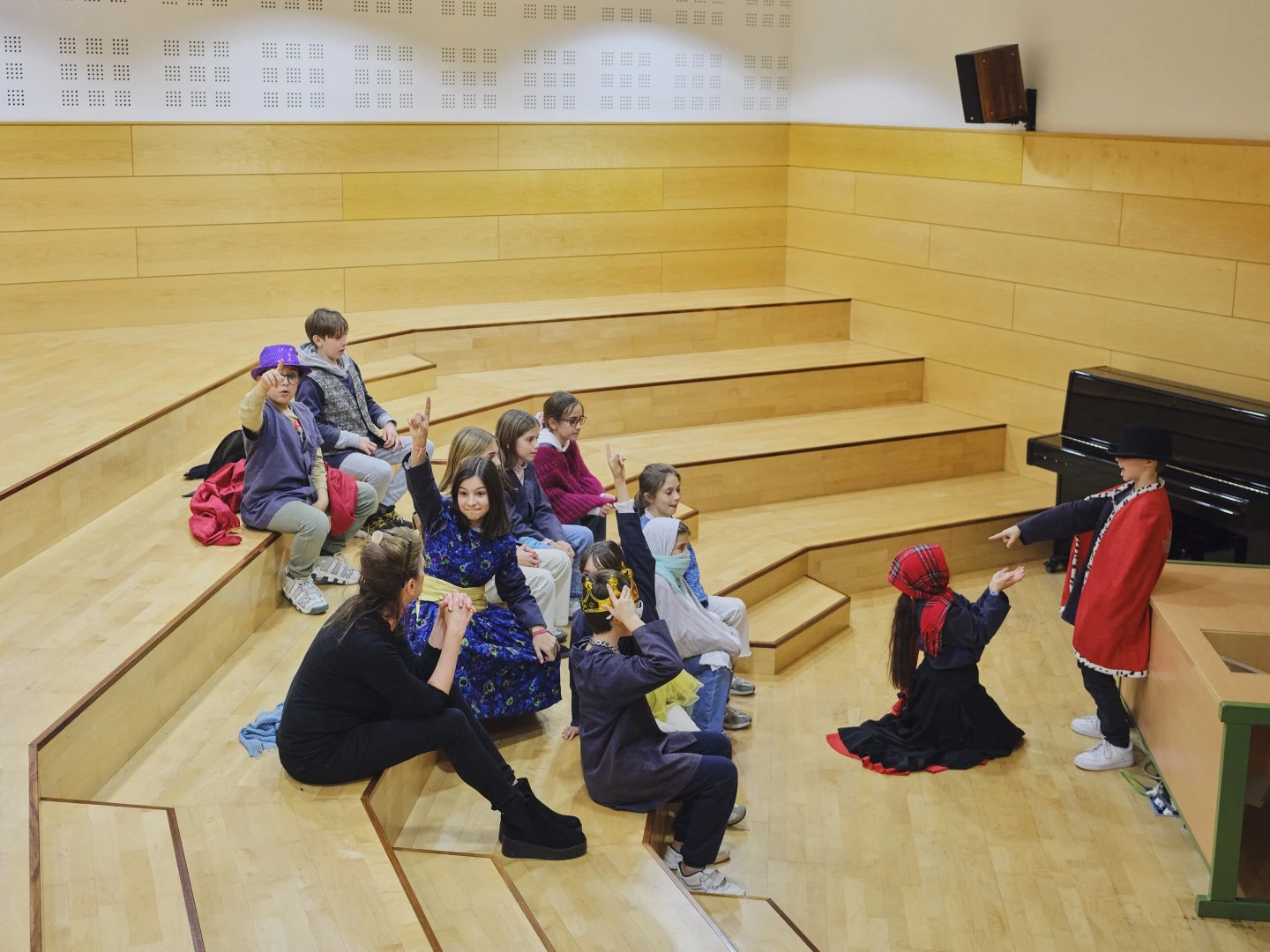
Research work (4th and 5th years)
This is the first piece of individual research work developed over the course of an entire academic year. Guided by their tutors, students choose a topic, research it (using books, digital material, museum visits, etc.), and present it to their peers.
It is a way of fostering autonomy and critical thinking towards information, of developing the ability to synthesize and exercise public speaking.
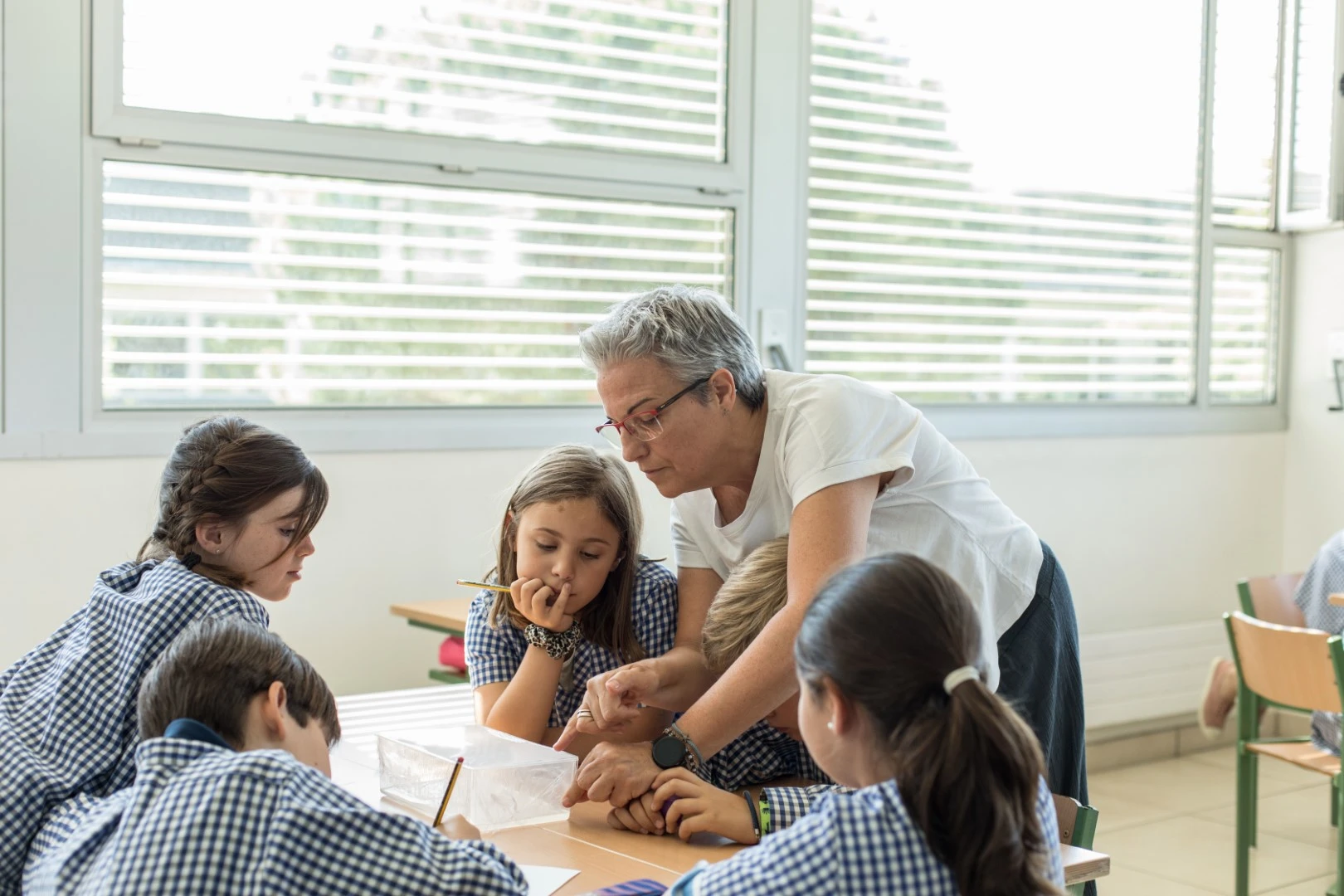
Outings
Throughout the course, there are many opportunities for students to acquire new knowledge with several activities away from the classroom. Outings to the theatre, discovering the city, nature or visiting an exhibition, are just some of the great opportunities in which students can acquire knowledge in a fun and enriching way.
In addition, during Primary, each grade goes on a school trip (3 or 4 days) where they learn about new environments: nature, wildlife, the weather, geology and the culture of sustainability.
Students learn to develop personal skills (self-knowledge, personal autonomy and communication), work in teams and discover the spirit of self-improvement. These field trips are a perfect opportunity for working on the unity of the group and on each student’s self-esteem and responsibility.
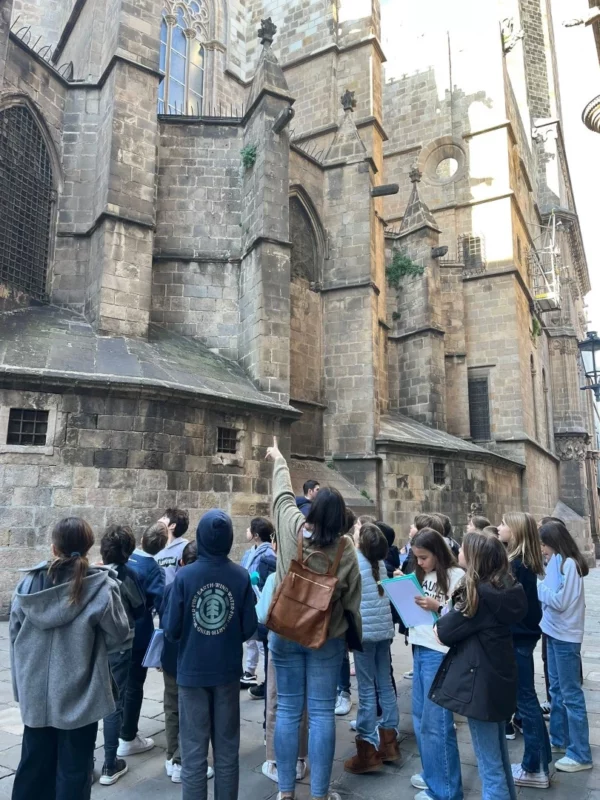
Organizational aspects
Relationship with the families
The relationship between the school and families is important and necessary: it must be close and built on trust.
The school invites families to an annual meeting during the first term of each academic year.
For students who are new to the school in Primary, a first meeting will be held during the month of June so they can get to know their future classmates and spend some initial moments together.
We are always available to discuss their child’s progress, and families can schedule a meeting with the tutor throughout the academic year.
Periodically, families receive a follow-up on their child’s progress in all subjects.
The school uses an application to share with families the activities of each class. It is a space where the tutors explain and illustrate with photos what the students are doing throughout the year.
School equipment
The students don’t wear a uniform, but they do wear a school smock and school sports equipment.
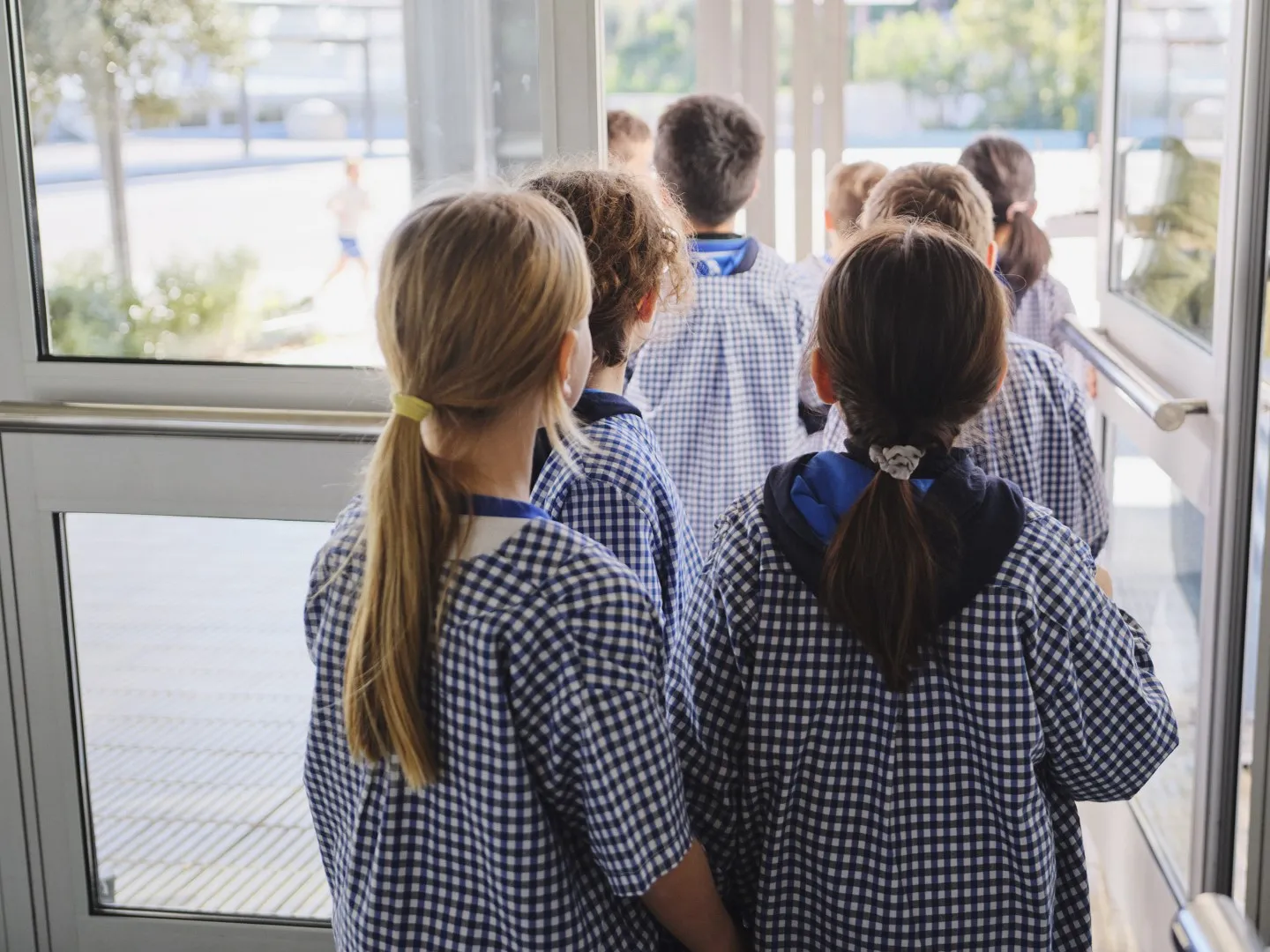
Textbooks
Since the material is created at the school, textbooks are only required from the Third year onwards and specifically for the study of foreign languages.
Most of the readings are done with the books available at the school.
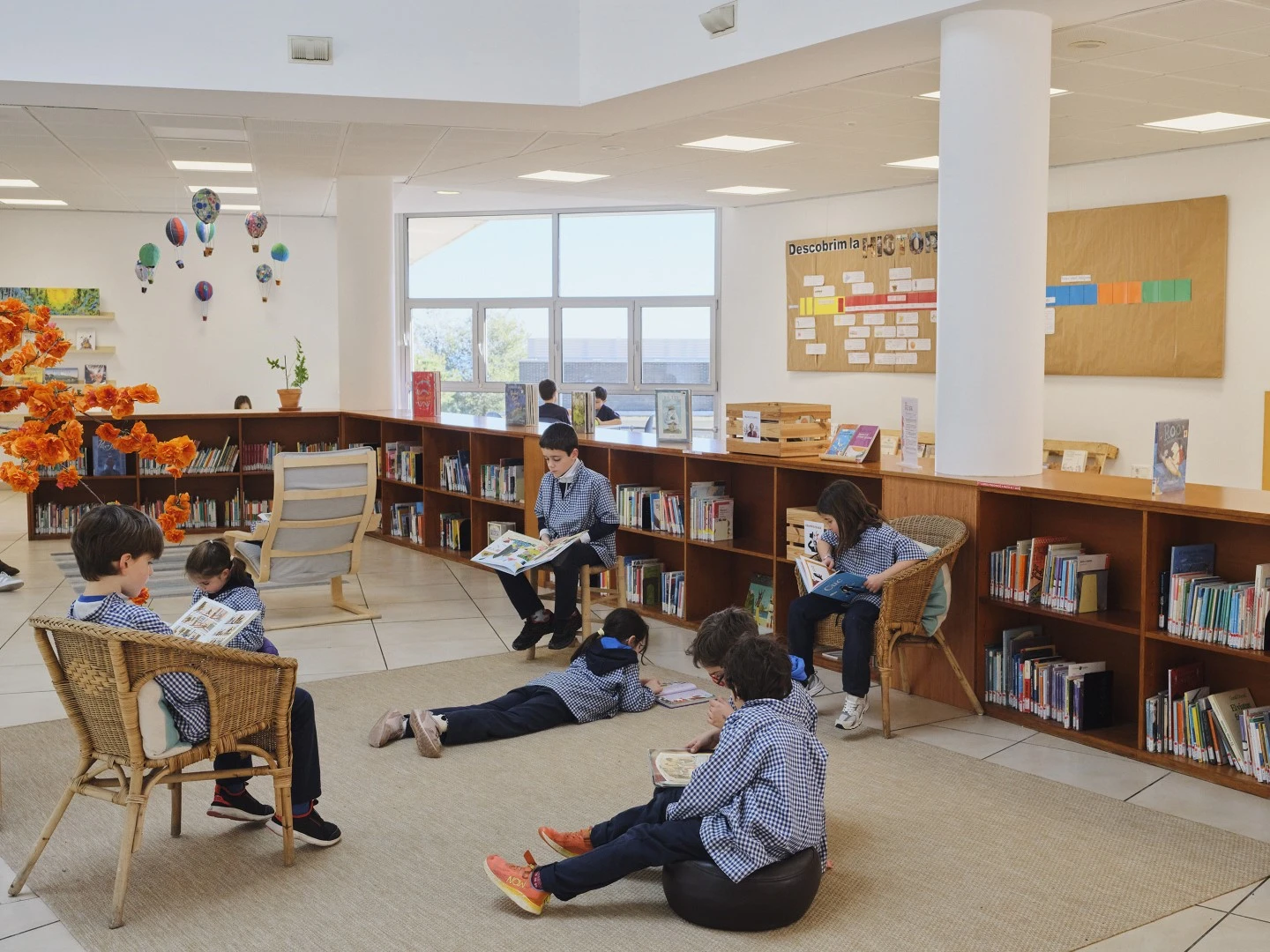
Special project
St. George’s Day
For one day, Aula becomes a large bookstore where students and their families enjoy special activities related to literature. Some of these activities include exhibitions, conferences, book presentations and solidarity initiatives.
Throughout the year, students in each class work together to create a book: they come up with the idea, write the texts and make the illustrations. This book is edited, published and, as the conclusion of the project, is taken home on Sant Jordi’s Day.
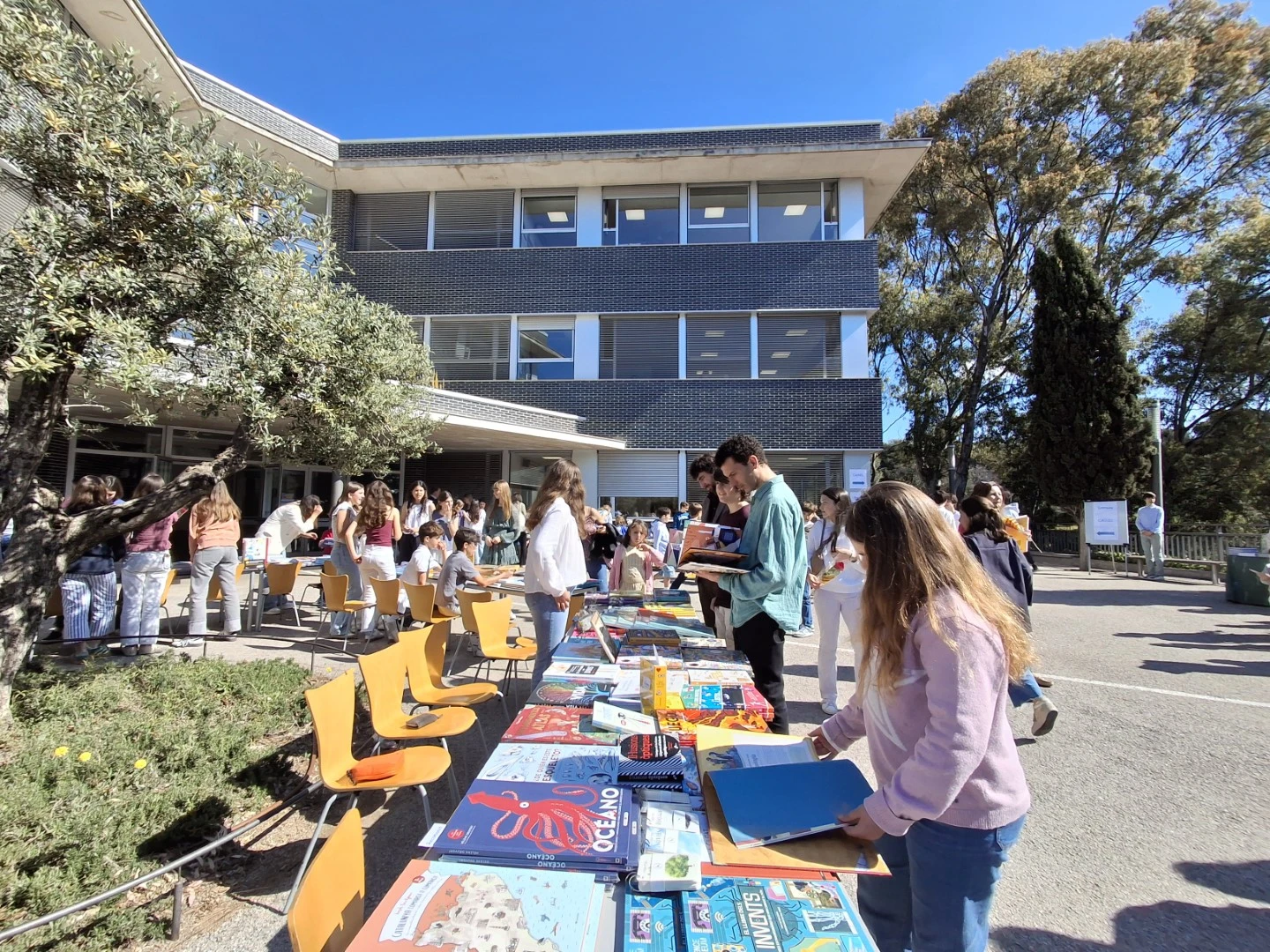
Cross Country Race
One of the most unique days of the school. Once a year, Aula organizes a series of races in which students (from the Third year of primary school), families, teachers and former students participate. Cross Country Day is a perfect time to get together.
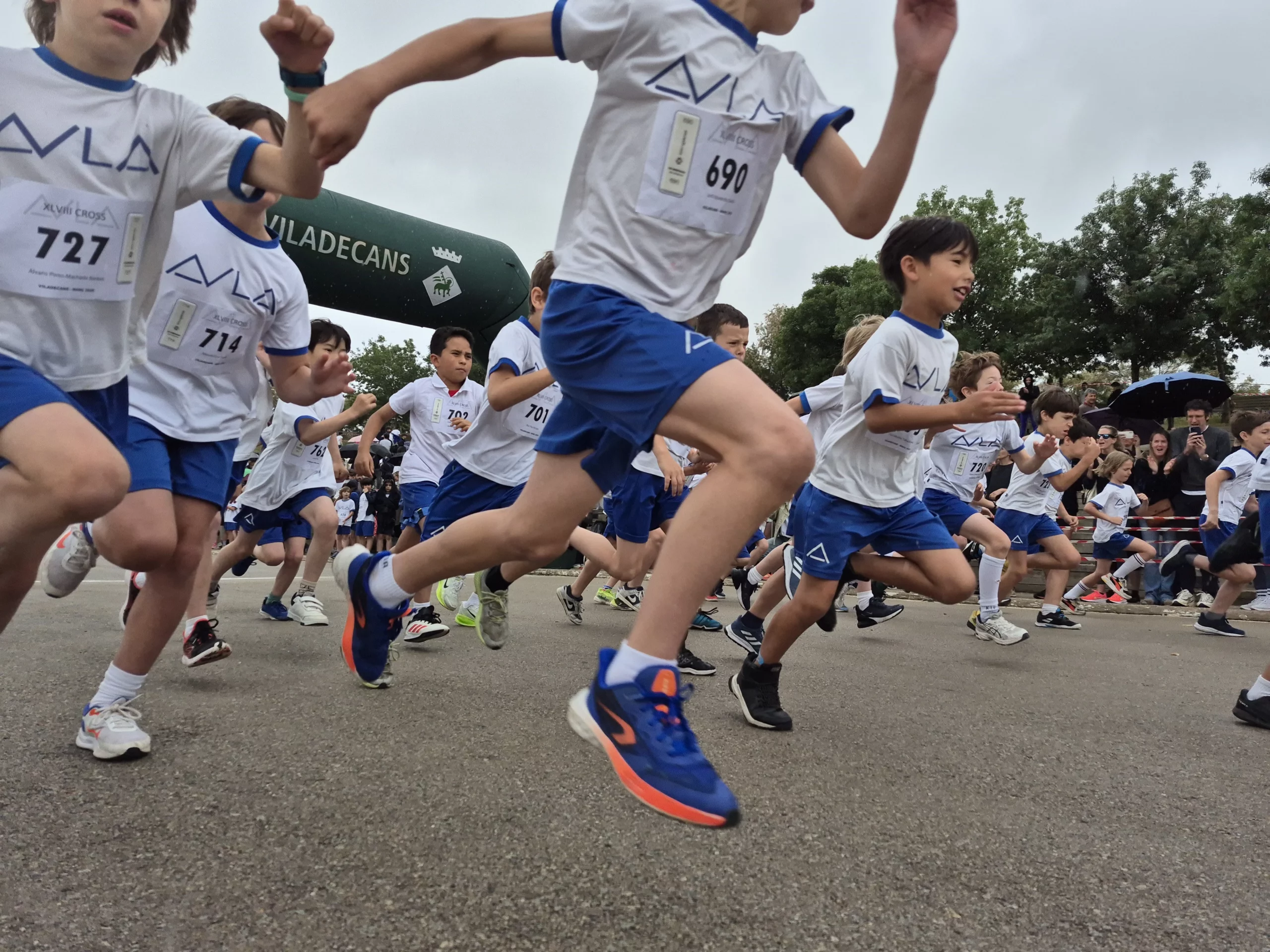
Solidarity Campaigns
Throughout the year, students participate in various solidarity initiatives, such as the clothing collection campaign in collaboration with Càritas or the annual collection for the Food Bank.
Catània
The students of the Fifth grade of Primary School participate in a participatory cantata organized by L’Auditori de Barcelona. During the year they rehearse songs and choreographies and prepare the props with the help of the teachers. At the end of the year, 800 children from all over Catalonia sing in a great show accompanied by several professional artists.
